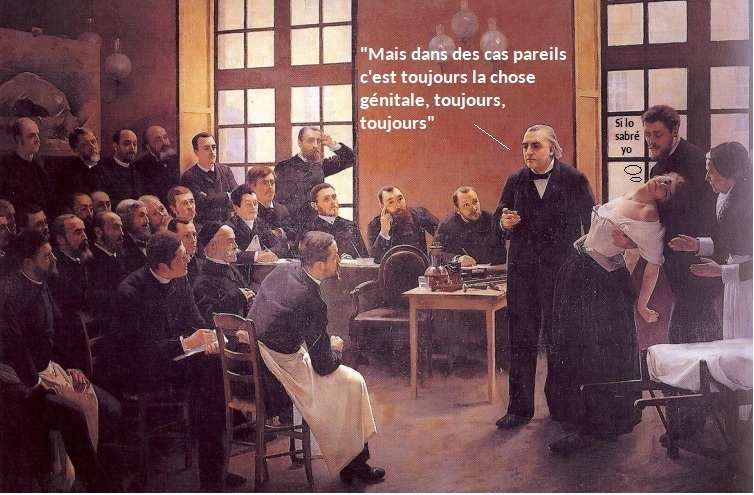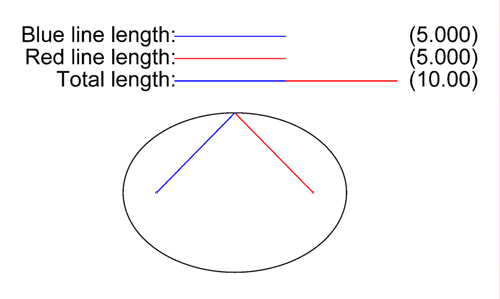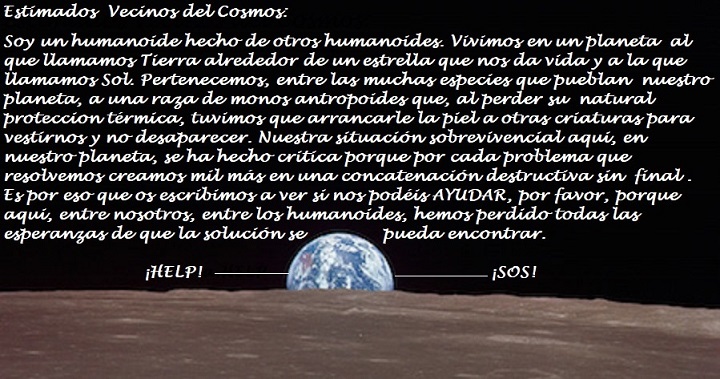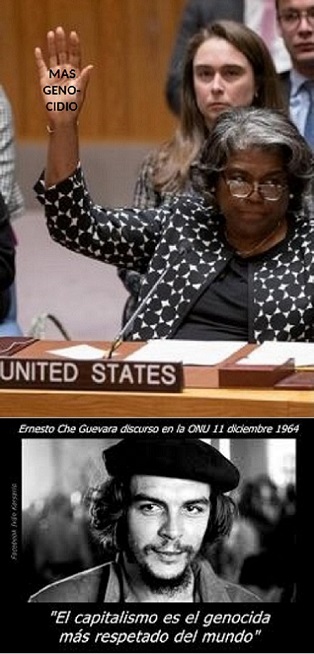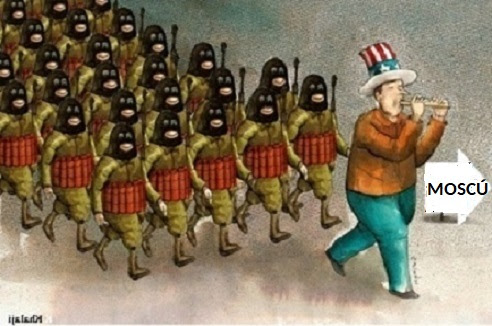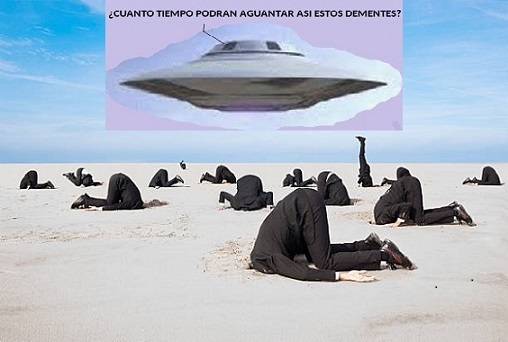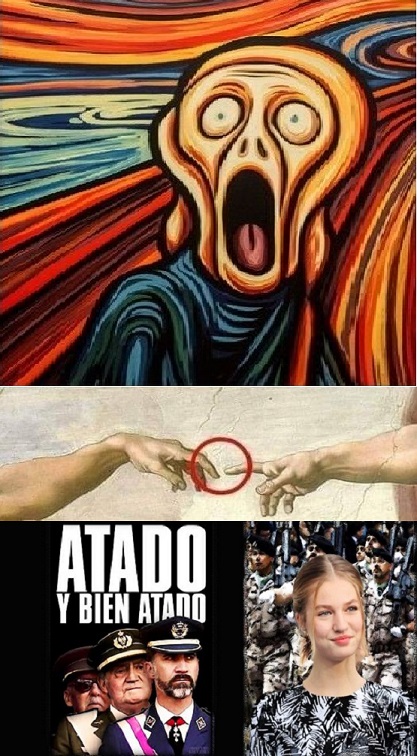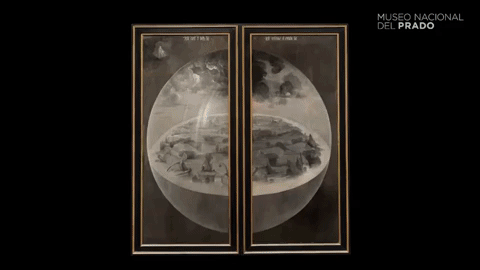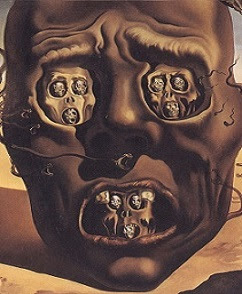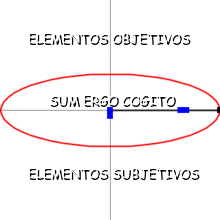 |
| "La Destrucción de la Razon", Georg Lukács |
by Hermann Luchterhand Verlag GmBH2.
Translated: by Peter R. Palmer, 1980.
The Merlin Press, London'. Pags. 9 y 16.
Nietzsche as Founder of Irrationalism
in the Imperialist Period
This, however, changed at once the subject and mode of expression of each and every reactionary philosophy. When bourgeois society was a rising force, reactionary philosophy had defended feudal absolutism and subsequently the feudal remnants, the restoration.
As we have noted, Schopenhauer’s special position stemmed from the fact that he was the first to proclaim a markedly bourgeois-reactionary world-view. But at the same time he remained on a par with the feudal reactionary, Schelling, inasmuch as what they both considered the chief enemy were the progressive tendencies of bourgeois philosophy: materialism and the dialectical method.
With the battle of June and with the Paris Commune in particular, reactionary polemics underwent a radical change of direction. On the one hand, there was no longer a progressive bourgeois philosophy to combat. Insofar as ideological disputes arose — and they figured prominently on the surface — they related primarily to differences of opinion as to how socialism could be disarmed most effectively, and to class differences within the reactionary bourgeoisie. On the other hand, the principal foe had already appeared in theoretical as well as palpable form. In spite of all the efforts of bourgeois learning it was becoming increasingly impossible to hush up Marxism; the bourgeoisie’s leading ideologues sensed with ever-growing clarity that this constituted their decisive line of defence, upon which they had to concentrate their strongest forces.
True, the accordingly defensive character of bourgeois philosophy only had a slow and paradoxical influence. The hushing-up tactics continued to prevail for a long while; from time to time it was attempted to incorporate ‘what was usable’ from historical materialism — correspondingly distorted — in bourgeois ideology. But this tendency assumed a wholly distinctive form only after the first imperialist world war, and after the victory of the great socialist October Revolution in Russia.
Right from the start, however, the defensive character was manifested in the fact that bourgeois philosophy was driven to the formulating of questions and into methodological controversies which did not arise out of any intrinsic need, but were forced upon it by virtue of the opponent’s existence.
It goes without saying that the solutions corresponded in every instance to the bourgeoisie’s class interests. In Nietzsche, of course, we perceive solely the initial stage of this development.
But we can already confirm some important changes at this stage. The most telling fact is that in the battle against Hegel’s idealist dialectics, the older irrationalists such as Schelling and Kierkegaard were occasionally in a position to indicate its real flaws. Although backward-looking inferences inevitably resulted from their critique, which was only partially accurate, their correct critical observations are of significance in the history of philosophy nonetheless.
The situation was completely altered as soon as the enemy had become dialectical and historical materialism. Here bourgeois philosophy was no longer in a position to exercise a real critique, or even to understand correctly the target of its polemics.
All that it could do was either to polemicize — at first openly, later increasingly surreptitiously — against dialectics and materialism altogether, or else to play the demagogue in trying to establish a system of pseudo-dialectics by which to counteract genuine dialectics.
Another point to consider is that the bourgeois philosophers ceased to possess any first-hand knowledge when the great arguments over objectives within the bourgeoisie abated. Schelling, Kierkegaard or Trendelenburg had still had an exact knowledge of Hegelian philosophy.
In criticizing Hegel without knowing him even superficially, Schopenhauer was once again a forerunner of bourgeois decadence. It seemed that when it came to opposing the class enemy, no holds were barred and all intellectual morality vanished. Scholars who were conscientious in other areas, only venturing to express themselves after accurately digesting their material, now permitted themselves the most facile assertions, which they had gleaned from other, similarly unfounded expressions of opinion. Even when presenting facts they never thought of resorting to the actual sources. This further helps to explain why the ideological struggle against Marxism took place on an incomparably lower level than did, in its own day, the reactionary irrationalist critique of Hegelian dialectics.
In view of this, how can we maintain of Nietzsche that his whole life’s work was a continuous polemic against Marxism and socialism, when it is perfectly clear that he never read a single line of Marx and Engels? We believe that the claim is still feasible, for the reason that every philosophy’s content and method are determined by the class struggles of its age.
Although philosophers — like scholars, artists and other ideologists — may more or less fail to recognize it and some times remain totally unaware of it, this conditioning of their attitude to so-called ‘ultimate questions’ takes effect notwithstanding. What Engels said of the lawyers is valid in an even acuter sense for philosophy: ‘The reflecting of economic conditions in legal principles operates without impinging on the awareness of the agents, and the lawyer imagines that he is operating with a priori theses, whereas they are simply economic reflexes ...’ Hence each ideology is consciously attached to ‘a specific intellectual fabric which has been transmitted by its predecessors’.[1] But this does not alter the fact that the selection of these traditional strands, one’s attitude towards them and method of treating them, the results obtained from a critique of them, etc., are, in the final reckoning, determined by economic conditions and the class struggles to which they give rise.
Philosophers know instinctively what is theirs to defend, and where the enemy lurks. Instinctively sensing the ‘dangerous’ tendencies of their age, they try to combat them philosophically.
We exposed in our preceding chapter this kind of modern reactionary defence against philosophical progress and the dialectical method, and we traced the essence and methodology of modern irrationalism back to precisely this type of reaction. In the observations we have just made, we have likewise attempted to outline the social reasons for the radical change in the representation of the enemy, and how this change was registered philosophically.
Now when we consider the period of Nietzsche’s activity, it can be clearly discerned that the Paris Commune, the evolution of the socialist parties of the masses, especially in Germany, as also the manner and success of the bourgeois struggle against them, impressed him most profoundly.
We shall postpone until later a thorough examination of the relevant details and their manifestations in Nietzsche’s life and work. First we intend to moot the general possibility that for Nietzsche, as for the other philosophers of the age, socialism as a movement and world-view had become the chief opponent, and that only this change on the social front and its philosophical consequences enable us to portray his outlook in its true context.
What determined Nietzsche’s particular position in the development of modern irrationalism was partly the historical situation at the time of his appearance, and partly his unusual personal gifts. With regard to the former, we have already touched on the most important social happenings of this period. Another circumstantial factor — one favourable to his development — was that Nietzsche concluded his activity on the eve of the imperialist age. This is to say that, on the one hand, he envisaged the impending conflicts of Bismarck’s age from every perspective. He witnessed the founding of the German Reich, the hopes that were pinned to it and their disappointment, the fall of Bismarck, and the inauguration by Wilhelm II of an overtly aggressive imperialism. And at the same time he witnessed the Paris Commune, the origins of the great party of the proletarian masses, the outlawing of socialists, and the workers’ heroic struggle against it. On the other hand, however, Nietzsche did not personally live to see the imperialist period. He was thus offered a favourable opportunity to conjecture and to solve in mythical form — on the reactionary bourgeoisie’s terms — the main problems of the subsequent period. This mythical form furthered his influence not only because it was to become the increasingly dominant mode of philosophical expression in the imperialist age. It also enabled him to pose imperialism’s cultural, ethical and other problems in such a general way that he could always remain the reactionary bourgeoisie’s leading philosopher, whatever the variations in the situation and the reactionary tactics adopted to match them. Nietzsche had already acquired this status before the first imperialist world war, and he retained it even after the second.
But the lasting influence whose objective possibility we have just outlined could never have become a reality, were it not for the peculiar features of Nietzsche’s not inconsiderable talent. He had a special sixth sense, an anticipatory sensitivity to what the parasitical intelligentsia would need in the imperialist age, what would inwardly move and disturb it, and what kind of answer would most appease it. Thus he was able to encompass very wide areas of culture, to illuminate the pressing questions with clever aphorisms, and to satisfy the frustrated, indeed sometimes rebellious instincts of this parasitical class of intellectuals with gestures that appeared fascinating and hyper-revolutionary. And at the same time he could answer all these questions, or at least indicate the answers, in such a way that out of all his subtleties and fine nuances, it was possible for the robust and reactionary class insignia of the imperialist bourgeoisie to emerge.
This Jekyll-and-Hyde character corresponds to the social existence, and hence to the emotional and intellectual world, of this class in a triple sense. Firstly, an oscillation between the most acute feeling for nuance, the keenest over sensitivity, and a suddenly erupting, often hysterical brutality is always an intrinsic sign of decadence. Secondly, it is very closely linked with a deep dissatisfaction concerning contemporary culture: an ‘unease about culture’ in Freud’s phrase, a revolt against it. Under no circumstances, however, would the ‘rebel’ stomach any interference with his own parasitical privileges and their basis in society. He therefore waxes enthusiastic if the revolutionary character of his discontent receives a philosophical sanction, but is at the same time deflected — with regard to its social substance — into a rebuttal of democracy and socialism. And thirdly, it was just at the time of Nietzsche’s activity that the class decline, the decadent tendencies reached such a pitch that their subjective evaluation within the bourgeois class also underwent a significant change.
For a long while, only the progressive opposition critics had been exposing and condemning the symptoms of decadence, whereas the vast majority of the bourgeois intelligentsia clung to the illusion of living in the ‘best of all worlds’, defending what they supposed to be the ‘healthy condition’ and the progressive nature of their ideology.
Now, however, an insight into their own decadence was becoming more and more the hub of these intellectuals’ self-knowledge. This change manifested itself above all in a complacent, narcissistic, playful relativism, pessimism, nihilism, etc. But in the case of honest intellectuals, these often turned into sincere despair and a consequent mood of revolt (Messianism, etc.).
Now as a diviner of the cultural psyche, as aesthetician and moralist, Nietzsche was perhaps the cleverest and most versatile exponent of this decadent self-knowledge. But his significance went further: in acknowledging decadence as the basic phenomenon of bourgeois development in his time, he undertook to chart the course of its self-conquest. For in the most spirited and vigilant intellectuals who succumbed to the influence of the decadent outlook, there ineluctably arose a desire to conquer it. Such a desire rendered the struggles of the burgeoning new class, the proletariat, extremely attractive for most of these intellectuals. Here, and particularly with regard to personal conduct and morality, they perceived auguries of a possible social recovery and, in connection with it — naturally this thought was uppermost — of their own recovery.
At the same time, the majority of the intellectuals had no inkling of the economic and social implications of a real socialist transformation. Since they contemplated it in purely ideological terms, they had no clear notion how far and how profoundly such a realignment would mean a radical break with their own class; or how such a break, once accomplished, would affect the lives of the persons concerned. Confused though this movement may have been, it did embrace wide sections of the more advanced bourgeois intelligentsia. Naturally enough, it revealed itself with particular vehemence in times of crisis (for instance, the ban on socialists, the fate of Naturalism, the First World War and the Expressionist movement in Germany, boulangisme and the Dreyfus Affair in France, etc.).
Nietzsche’s philosophy performed the ‘social task’ of ‘rescuing’ and ‘redeeming’ this type of bourgeois mind. It offered a road which avoided the need for any break, or indeed any serious conflict, with the bourgeoisie.
It was a road whereby the pleasant moral feeling of being a rebel could be sustained and even intensified, whilst a ‘more thorough’, ‘cosmic biological’ revolution was enticingly projected in contrast to the ‘superficial’, ‘external’ social revolution. A ‘revolution’, that is, which would fully preserve the bourgeoisie’s privileges, and would passionately defend the privileged existence of the parasitical and imperialist intelligentsia first and foremost. A ‘revolution’ directed against the masses and lending an expression compounded of pathos and aggressiveness to the veiled egotistic fears of the economically and culturally privileged.
The road indicated by Nietzsche never departed from the decadence proliferating in the intellectual and emotional life of this class. But the new-found self-knowledge placed it in a new light: it was precisely in decadence that the true progressive seeds of a genuine, thorough-going renewal of mankind were deemed to lie. This ‘social task’ found itself in pre-established harmony, as it were, with Nietzsche’s talents, his deepest intellectual inclinations and his learning.
Like those sections of society at whom his work was aimed, Nietzsche himself was principally concerned with cultural problems, notably art and individual morality. Politics always appeared as though on an abstract, mythicized horizon, and Nietzsche’s ignorance of economics was as great as that of the average contemporary intellectual.
Mehring was quite right to point out that his arguments against socialism never surpassed the level of Leo, Treitschke, etc.[2] But the very association of a coarsely humdrum anti-socialism with a refined, ingenious, sometimes even accurate critique of culture and art (for example the critiques of Wagner and Naturalism) was what made Nietzsche’s subject-matter and modes of exposition so seductive for the imperialist intelligentsia. We can see how great the temptation was right through the imperialist period. Beginning with Georg Brandes, Strindberg and Gerhart Hauptmann’s generation, its influence extended to Gide and Malraux. And it was by no means limited to the reactionary part of the intelligentsia. In the essence of their overall work, decidedly progressive writers like Heinrich and Thomas Mann or Bernard Shaw were equally prey to this influence.
Indeed it was even capable of making a strong impression on some Marxist intellectuals. Even Mehring — for the time being — assessed it as follows: ‘The Nietzsche cult is still more useful to socialism in another respect. No doubt Nietzsche’s writings have their pitfalls for the few young people of literary talent who may still be growing up within the bourgeois classes, and are initially labouring under bourgeois class-prejudices. But for such people, Nietzsche is only a transitional stage on the way to socialism.’[3]
We have, however, explained only the class basis and the intensity of Nietzsche’s influence, and not its long duration. This rests on his undoubted philosophical abilities. From Julius Langbehn (author of Rembrandt als Erzieher) to Koestler and Burnham in our own day, the standard pamphleteers of the reactionary wing have never done more than satisfy, with more or less skilful demagogics, whatever happened to be the bourgeoisie’s tactical needs. But Nietzsche, as we shall see in more detail later, was able to enshrine and formulate in his works some of the most important lasting features of reactionary attitudes to the imperialist period, and to the age of world wars and revolutions.
To perceive his standing in this field, one has only to compare him with his contemporary, Eduard von Hartmann. The latter epitomized as a philosopher the ordinary, reactionary-bourgeois prejudices of the age after 1870, the prejudices of the ‘healthy’ (i.e., sated) bourgeois. This is why he at first enjoyed a much greater success than Nietzsche, and also why he fell into complete oblivion in the imperialist period.
Certainly Nietzsche, as we have already noted, achieved everything in a mythicizing form. This alone enabled him to comprehend and define prevailing tendencies because, lacking any understanding of capitalist economics, he was solely capable of observing, describing and expressing the symptoms of the superstructure. But the myth-form also results from the fact that Nietzsche, the leading philosopher of the imperialist reaction, did not live to see imperialism. Exactly like Schopenhauer as the philosopher of the bourgeois reactionaries after 1848, he wrote in an age that was nurturing only the first shoots and buds of what was to come.
For a thinker incapable of recognizing the real generative forces, these could only be portrayed in a utopian, mythical manner. True, his task was facilitated both by the expressive mode of myth and by its aphoristic form, whose characteristics we are about to discuss. This is because such myths and aphorisms, depending on the bourgeoisie’s immediate interests and their ideologues’ endeavours, could be arranged and interpreted in the most diverse, often diametrically opposed ways. But the constant harking back to Nietzsche — in each instance a ‘new’ Nietzsche — shows that there was a definite continuity beneath it all. It was the continuity of the basic problems of imperialism in its entirety from the standpoint of the reactionary bourgeoisie’s lasting interests, viewed and interpreted in the light of the permanent needs of the parasitical bourgeois intelligentsia.
There can be no doubt that such an intellectual anticipation betokens a not inconsiderable gift of observation, sense of the problematic, and capacity for abstraction. In this respect Nietzsche’s historical position is analogous to that of Schopenhauer. The two are also closely associated in the fundamental tenor of their philosophy. We shall refrain here from raising the historio-philological questions of influence, etc. The current attempts to dissociate Nietzsche from Schopenhauer’s irrationalism, and to connect him with the Enlightenment and Hegel, I regard as childish, or rather, as an expression of history-fudging in the service of American imperialism on the lowest level yet see.
Of course there exist differences between Schopenhauer and Nietzsche, growing ever deeper as Nietzsche clarified his efforts in the course of his development. But they are more in the nature of differences of period: differences in the methods of combating social progress.
From Schopenhauer, however, Nietzsche took over the principle of the methodological coherence in his intellectual structure, merely modifying and extending it to suit the age and the opponent. It amounted to what we identified in our second chapter as the indirect apologetics of capitalism. Naturally this basic principle partly assumed new concrete forms in consequence of the conditions of a more acutely developed class struggle. Schopenhauer’s struggle against the progressive thinking of his times could be summed up by saying that he condemned all action as intellectually and morally inferior. Nietzsche, on the contrary, called for active participation on behalf of reaction, of imperialism. This in itself obliged him to cast aside the whole Schopenhauerian duality of Vorstellung and Wille, and to replace the Buddhist myth of will-power with the myth of the will-to-power.
Similarly, a further consequence of the heightened class struggle was his inability to make anything of Schopenhauer’s abstract rejection of history in general. A real history, of course, did not exist for Nietzsche any more than for Schopenhauer, yet his apologetics of aggressive imperialism take the form of a mythicizing of history.
Lastly — here we can only enumerate the most essential points — while Schopenhauer’s apologetics were indirect with regard to form, he voiced his socio-politically reactionary sympathies in an open, even provocatively cynical manner. With Nietzsche, on the contrary, the principle of indirect apologetics also permeates the mode of exposition, his aggressively reactionary siding with imperialism being expressed in the form of a hyper-revolutionary gesture. The fight against democracy and socialism, the imperialist myth and the summons to barbarous action are intended to appear as an unprecedented reversal, a ‘transvaluation of all values’, a ‘twilight of the false gods’; and the indirect apologetics of imperialism as a demagogically effective pseudo-revolution.
This content and method of Nietzschean philosophy were most intimately connected with his literary manner of expression, namely the aphorism.
Such a literary form made the element of change possible within the context of his lasting influence. When a shift in interpretation has become a social necessity — as, for example, in the age immediately preparatory to Hitlerism, and as again today, after Hitler’s downfall — there are no obstacles to the revision of the enduring content such as we find with thinkers who have expressed the coherence of their intellectual world in a systematic form. (Granted, the fate of Descartes, Kant and Hegel in the imperialist period shows that the reactionary is capable of surmounting even these obstacles.)
With Nietzsche, however, the task was far simpler: at each stage different aphorisms would be singled out and brought together, in accordance with the needs of the moment. There is one further point to consider as well. Much as the basic objectives accorded with the ideological outlook of the parasitical intelligentsia, to voice them in a systematic, brutal and open fashion would have repelled a wide and not insignificant circle. Thus it is far from an accident that, with but few exceptions (notably the immediate pioneers of Hitlerian fascism), Nietzsche-exegesis has stuck to his cultural critique, moral psychology and so forth, and has seen in Nietzsche an ‘innocent’ thinker concerned only with the spiritual problems of an intellectual and moral ‘élite’. Brandes and Simmel saw him thus, as did Bertram and Jaspers later, and as does Kaufmann today. And correctly so from the class standpoint, since the overwhelming majority thereby won for Nietzsche has later been ready to take practical steps matching this outlook. Writers like Heinrich and Thomas Mann have been exceptions.
This, however, is merely the result of the aphoristic mode of expression. Let us now consider the mode itself. Academic schools of thought have often reproached Nietzsche with having no system, something they held to be necessary to a real philosopher. Nietzsche himself roundly condemned all systems: ‘I mistrust all systematic thinkers and give them a wide berth. A deliberate systematization means a lack of honesty.’[4] This tendency we have already observed in Kierkegaard, and it is not fortuitous.
The bourgeoisie’s philosophical crisis, as evidenced in the demise of Hegelianism, amounted to far more than the recognition of a given system’s inadequacy; it signified the breakdown of a concept that had swayed men for thousands of years. When the Hegelian system collapsed, so did the whole endeavour to co-ordinate, and so to comprehend, the world’s totality and its principle of growth from idealist sources, i.e., from elements of the human consciousness. This is not the place to give even a rough outline of the fundamental changes resulting from this final breakdown of the idealist system-concept. Granted, we know that even after Hegel academic systems were created (Wundt, Cohen, Rickert, etc.), but we know also that they were totally insignificant for the evolution of philosophy. We know too that the demise of the system in bourgeois thought prompted the outbreak of a bottomless relativism and agnosticism, as though the now obligatory renunciation of idealist systematizing were at the same time to mean renouncing the objectivity of knowledge, a real coherence of the actual world, and the possibility of knowing this.
But equally we know that the burial once and for all of the idealist system coincided with the discovery of the real framework of objective reality, namely dialectical materialism. Engels, polemicizing against Nietzsche’s contemporary Eugen Düuhring, formulated the new philosophical position thus: ‘The real unity of the world lies in its materiality ...[5] This unity the individual branches of learning seek (with ever greater accuracy) both to reflect and to embrace conceptually; the principles and laws of this cognitive process are summed up by philosophy. So the systematic framework has not disappeared. It no longer appears, however, in the form, of idealist ‘essences’, but always as an approximating reflection of that unity, that coherence, that set of laws which is objectively — or independently of our consciousness — present and operative in reality itself.
Nietzsche’s rejection of systems arose out of the relativistic, agnosticizing tendencies of his age. The point that he was the first and most influential thinker with whom this agnosticism turned into the sphere of myth we shall investigate later. To this outlook his aphoristic mode of expression is no doubt intimately related. But he also had another motive beyond this. It is a general phenomenon in ideological history that thinkers who can observe a social development only in embryo, but who can already perceive the new element in it and who — especially in the moral area — are striving for an intellectual grasp of it prefer the essayistic, aphoristic forms.
The reason is that these forms guarantee the expression most fitted to a mixture of a mere scenting of future developments on the one hand, and an acute observation and evaluation of their symptoms on the other. We see this in Montaigne and Mandeville, and in the French moralists from La Rochefoucauld to Vauvenargues and Chamfort.
Stylistically, Nietzsche had a great liking for most of these authors. But a contrast in the basic tenor of the content accompanied this formal preference. The important moralists had already criticized — the majority in a progressive way — the morality of capitalism from within an absolutist, feudal society. Nietzsche’s anticipation of the future was, on the contrary, approvingly oriented to an impending reactionary movement, qualitatively heightened, that is to say imperialist reaction. It was solely the abstract fact of the anticipation which determined the formal affinity.
We must now ask whether, in Nietzsche’s case, we are justified in speaking of a system. Are we entitled to interpret his individual aphorisms in a systematic context? We believe that the systematic coherence of a philosopher’s thoughts is an older phenomenon than the idealist systems and can still survive when they have collapsed. No matter whether this systematic framework is an approximately correct reflection of the real world or one distorted by class considerations, idealist notions and so forth, such a systematic framework is to be found in every philosopher worth his salt.
Admittedly, it does not tally with the structure which the individual philosopher himself intends to give his work. While indicating the need thus to reconstruct the real, consistency in the fragments of Heraclitus and Epicurus, Marx added: ‘Even with philosophers who give their works a systematic form, Spinoza for instance, the actual inner structure of the system is quite different from the form in which they consciously present it.’[6] We shall now venture to show that such a systematic coherence may be detected behind Nietzsche’s aphorisms
2
It is at any rate characteristic that his sister (although we must view her statements in a highly critical light) recorded the following memory of the war. At that time, she wrote, he first sensed ‘that the strongest and highest will-to-live is expressed not in a wretched struggle for survival, but as the will to fight, the will to power and super-power’.[7]
At all events this bellicose philosophical state of mind, which was an extremely Prussian one, in no way contradicts the young Nietzsche’s other views. In his papers of autumn 1873, for example, we find the following: ‘My starting-point is the Prussian soldier: here we have a true convention, we have coercion, earnestness and discipline, and that also goes for the form.’[8]
Just as distinct as the source of the young Nietzsche’s enthusiasm are the features of his principal enemy. Directly after the fall of the Paris Commune he wrote to his friend, Baron von Gersdorff:
The connection between the battle against liberalism and that against socialism very soon became apparent. The Strauss pamphlet attacked the liberal ‘cultural philistine’, and did so with such energy and brilliance that it succeeded in deceiving even such a Marxist as Mehring about its true nature, for Mehring thought that ‘indisputably’ Nietzsche had here defended ‘the most glorious traditions of German civilization’.[11]
But Nietzsche himself wrote in his notes for the lectures ‘On the Future of our Cultural Institutions’ (1871-3): ‘The most widespread culture, i.e., barbarity is just what Communism presumes ... universal culture turns into a hate of genuine culture ... To have no wants, Lassalle once said, is a people’s greatest misfortune. Hence the workers’ cultural associations, whose aim has been often described to me as that of creating wants ... The drive, therefore, to disseminate culture as widely as possible has its origins in a total secularization, by which culture is reduced to a means of gain and of earthly happiness in the vulgar sense.’[12] As we see, Nietzsche’s philosophical thinking was opposed to democracy and socialism from the beginning.
This attitude and these perspectives form the basis of Nietzsche’s understanding of Ancient Greece. Here his opposition to the revolutionary traditions of bourgeois development is quite plainly perceptible. We are not thinking mainly of the Dionysian principle which made Nietzsche’s first writings famous, for there the idea was still, in his own words, part of his ‘artist metaphysics’. It took on actual significance only after the conquest of decadence had become a central problem for the mature Nietzsche. We want to put the chief emphasis on the principles upon which his new image of Ancient Greece was founded in the first place. And prominent among these is the idea that slavery is necessary to any real civilization.
If Nietzsche had stressed the role of slavery in Greek culture merely from the historical standpoint, this perfectly correct observation would be of no great importance; he himself referred to Friedrich Wolf, who had made it before him.[13] It was bound to gain an even wider currency, and not only because of progress in historical studies. It followed also from a review of the ‘heroic illusions’ of the French Revolution, whose ideologists had ignored the slavery issue in order to create out of the democratic city-state the model of a modern revolutionary democracy. (These same views influenced the German image of Ancient Greece in the period from Winckelmann to Hegel.)
What is new in Nietzsche is that he used slavery as a vehicle for his critique of contemporary civilization: ‘And while it may be true that the Greeks perished because of their slave-holding, it is far more certain that we shall perish because of the absence of slavery.’[14]
So if Nietzsche — showing certain methodological affinities with Romantic anti-capitalism — contrasts a great bygone period with the capitalist present which he was criticizing, it is not the same thing as Sismondi’s contrast between the peaceful, simple trade in goods and an age of crisis and mass unemployment. Nor is it the same as ordered and purposeful artisan labour in the Middle Ages, as contrasted by the young Carlyle with the division of labour and an age of anarchy.
What Nietzsche contrasts with present times is the Greek dictatorship of an élite which clearly recognizes ‘that work is an ignominy’, and which creates immortal art-works at its leisure. ‘In more recent times’, he wrote, ‘it is not the person who needs art but the slave who has determined the general outlook. Such phantoms as the dignity of man, the dignity of labour are the shabby products of a slave mentality hiding from its own nature. Unhappy the age in which the slave needs such ideas and is spurred to reflect upon himself and the world around him. Wretched the seducers who have deprived the slave of his innocence by means of the fruit from the Tree of Knowledge!’[15]
Now what are the qualities of this ‘élite’ whose revival, assisted by a return of slavery, aroused in the young Nietzsche the hope of a cultural renaissance on a utopian and mythical plane? That it springs up from a barbarian condition is some thing we might accept as confirming historical facts. Indeed Nietzsche depicted it in the most lurid colours in ‘Homer’s Contest’ (1871-2). But if we are to understand Greek civilization, stated Nietzsche in a polemic against the Orphic thinkers — who held that ‘a life rooted in such an urge is not worth living’ — then ‘we must start out from the idea that the Greek genius accepted this so fearfully active urge and regarded it as justified’.[16]
Thus it is a matter not of conquering, civilizing and humanizing the barbarian instincts, but of constructing the great civilization on their bedrock and diverting them into suitable channels. Only in this context, not from the standpoint of some vague ‘artist metaphysics’, can the Dionysian principle be properly grasped and appreciated.
Moreover, Nietzsche rightly said in a later draft of the preface to his debut work on the Dionysian principle: ‘What a disadvantage my timidity is when I speak as a scholar of a subject of which I might have spoken from “experience”.’[17]
For the young Nietzsche, the organ for the social utilization of the barbarian instincts is the contest (agon). This, as we are about to note from Nietzsche’s own statements, was a mythicizing of capitalist competition.
He quotes from Pausanias the Hesiod passage about the two goddesses Eris: ‘She (the good Eris, G.L.) spurs even the inept to work; and if a man without property sees a wealthy man, he will make haste to sow and plant likewise and to put his house in good order; neighbour competes with neighbour in striving for prosperity. This Eris is beneficial for mankind. One potter will resent another, one carpenter the other, beggar envies beggar and singer envies singer.’[18] And this state of affairs he contrasted with modern depravity: ‘Nowadays self-seeking is feared as “the devil incarnate” ’, whereas for the ancients the goal of the agonal training was ‘the welfare of the whole, the commonwealth’.[19]
If we now return to slavery as the alleged bedrock of any genuine civilization, we can see how much of the later Nietzsche this early work — albeit in an immature manner — anticipated. In this context the Schopenhauer and Wagner portraits which he produced with such fervent eloquence resemble mythicized pretexts for expressing something not yet fully developed, half in poetic and half in philosophical form. His own later criticism of his first writings — especially in Ecce homo — all tended in this direction: ‘... that what I learnt from Wagner about music in those years has nothing at all to do with Wagner; that when I described Dionysian music I was describing the music that I had heard, — that I had instinctively to transpose and transfigure into the new spirit all that was latent within me. The proof of this, the strongest possible proof, is my piece Wagner in Bayreuth: I am the sole subject in all the psychologically crucial pas sages — one may automatically read my own name or the word “Zarathustra” wherever the text reads “Wagner” ... the latter himself sensed this; he was unable to recognize himself in the piece.’[20]
Modified somewhat, this also applies to the Schopenhauer portrait in the work of Nietzsche’s youth. The third, similarly mythologized, Socrates portrait is a totally different matter. In the debut work the great antithesis was already ‘The Dionysian and the Socratic’.[21] And Nietzsche — at first in predominantly aesthetic terms — enlarged this antithesis to encompass that of instinct and reason. In Ecce homo he reached his conclusion: the discovery that Socrates was a ‘décadent’ and that one must rate ‘morality itself as a symptom of decadence’ the mature Nietzsche regarded as ‘an innovation, a discovery of the first order in the history of knowledge’.[22]
When investigating in general the determining causes of Nietzsche’s further development, one usually lays the chief stress on the Wagner disappointment. But the points just raised concerning Nietzsche’s attitude to Wagner already show us that it was a symptom of his shift rather than its actual cause. In Wagner, and with increasing acuteness, Nietzsche challenged the art of his own German period in the name of the imperialist future.
When, especially after the First World War, it became the fashion to challenge the nineteenth century’s ideology (the age of ‘security’) in the name of the twentieth, Nietzsche’s split with Wagner and late polemics against him furnished the methodological ‘model’ for this conflict. The fact that the ideological spokesmen of the Hitler period continued this tradition, though linking it with Wagner idolatry, does not prove anything. Their rejection of ‘security’ was combined also with the glorification of Bismarck, whom Nietzsche in his final period nearly always attacked in conjunction with Wagner. For the older Nietzsche, Wagner was the greatest artistic expression of that decadence whose most important political representative he saw in Bismarck. And in going beyond the philosophy of Schopenhauer he followed the same direction.
We must not forget that even the young Nietzsche was never a really orthodox disciple of Schopenhauer with regard to radical a-historicism. From the start he had toyed with a mythicizing of history, whereas his master had totally avoided history. This tendency, already present in The Birth of Tragedy, grew more pronounced in the second Untimely Consideration. Activism — of the counter-revolutionary variety — was more over gaining in significance for Nietzsche. And thus, along with Wagner and Bismarck, Schopenhauer too came more and more within the area of that decadence he wanted to conquer. This, naturally enough, did not prevent Nietzsche from adhering all his life to Berkeley-Schopenhauer epistemology, as we are likewise soon to see. He adapted it, however, to suit his own particular purpose.
Now where do we look for the real causes behind Nietzsche’s development, and for the basic features of his so-called second period? It is our belief that they can be found in the aggravation of those socio-political conflicts which governed the second half of the seventies (cultural conflict, but above all the anti-socialist laws). We have observed how strongly Nietzsche’s first works were affected by the war of 1870-1 and hopes of a general cultural regeneration in the aftermath of victory. We have further observed how tenuous the young Nietzsche’s hopes were and how apolitical his perspectives, despite his general social and historico-philosophical stand in favour of slavery. Now this changed quite decisively in the second half of the seventies. Not that Nietzsche by now had acquired clear ideas on politics and more particularly on their underlying economics; we shall soon see his naive ignorance when it came to the latter. But in spite of all the facts speaking against him and the confusion in his views, Nietzsche’s cultural and historico-philosophical studies were moving in a direction oriented towards the concrete present and future.
Let us anticipate for a moment what we are going to amplify on this subject. Nietzsche’s new political position was centred upon the idea of rebutting and disarming the socialist threat, his chief adversary now as before, with the aid of democracy. Here we must note that Nietzsche regarded Bismarck’s Germany as a democracy. And so — no matter how far Nietzsche was aware of it — his hope that here lay the cure for socialism was very closely connected with Bismarckian politics. We cannot take it as pure coincidence that his first work of this period, Human, All-Too-Human, appeared roughly half a year before the promulgation of the socialist ban. To be sure, this was also the date of the centenary of Voltaire’s death. And very far-reaching conclusions have been drawn from the dedication with which Nietzsche prefaced his first edition on this occasion. Their validity, however, is extremely limited. For if we read Nietzsche’s Voltaire treatise we perceive that it was still dealing with the same conflict we have defined as the most important in his life. But with the difference, characteristic of this period, that Nietzsche now thought the evolution which he praised Voltaire for representing was the surest antidote to revolution (i.e., socialism). In this light he drew his parallel between Voltaire and Rousseau (the aphorism’s title, ‘A Falsity in the Doctrine of Revolution’, is typical of Nietzsche at the time). ‘Not Voltaire’s moderate nature with its bias towards ordering, purifying and reconstructing, but Rousseau’s passionate follies and half-truths have awakened the optimistic revolutionary spirit, and against it I cry, “écrasez l’infâme!” It has long been responsible for banishing the spirit of enlightenment and progressive development.’[23]
Nietzsche was to persist in this view of Voltaire long after he had overcome the illusions of Human, All-Too-Human. Indeed, in line with his later radicalism, he now saw Voltaire’s universal historical significance solely in this opposition to Rousseau and revolution. Thus he wrote in The Will to Power: ‘Only at this point does Voltaire (hitherto a mere bel esprit) become the man of his century, the philosopher and representative of tolerance and unbelief.’[24]
Thus in the second half of the seventies, Nietzsche became a ‘democrat’, ‘liberal’ and evolutionist precisely because he found in this the most effective counterpoise to socialism. His enthusiasm for this — as he then believed — inevitable transitional step was very temperate; one must, he wrote, ‘adapt oneself to the new circumstances as one adapts when an earthquake dislocates the earth’s old borders and contours’.[25] But in the second part of the same work he thought it possible ‘that the democratization of Europe is one link in the chain of those enormous prophylactic measures constituting the idea of the new times and dividing us from the Middle Ages. Only now has the era of Cyclopean structures arrived! At last we have stable foundations on which the whole future can safely build! Impossible, henceforth, for wild and sense less mountain waters once more to ruin the fertile fields of civilization overnight! Stone dams and bulwarks against barbarians, pestilence, physical and mental thraldom!’[26]
In this vein Nietzsche went so far as even to condemn exploitation as stupid and futile: ‘The exploitation of the worker was, as we now recognize, a piece of stupidity, a maverick enterprise at the future’s expense which imperilled society. Now we are already on the verge of war: from now on, at all events, there will be a very high price to pay for maintaining peace, sealing contracts and winning confidence, because the exploiters’ foolishness was very great and long-lasting.’[27] The new form of government — and here he expressly sided with Bismarck — was to be an admittedly unhistorical but shrewd and useful compromise with the people, whereby all human relations would undergo a gradual transformation.
In Nietzsche’s opinion — one which fully harmonized with the views just quoted — the positive value of such ‘democratic evolution’ rested in its ability to rear a new ‘elite’. Thus in completing the turn to ‘democracy’ à la Bismarck, Nietzsche gave up none of his youthful aristocratic convictions. For now he still saw the salvation of culture solely in a more resolute bestowal of privileges on a minority, one whose leisure was based on the hard physical labour of the majority, the masses. He wrote: ‘A higher civilization can only come about when there are two distinct social castes: that of the working people and that of the leisured, those capable of true leisure; or, to put it more strongly, the caste of forced labour and the caste of free labour.’[28]
So close to liberalism was he coming that temporarily he even appropriated its concept of the State. He wrote the oft-quoted sentence: ‘Modern democracy is the historical form of the decay of the State.’ But just how Nietzsche amplified this idea is seldom quoted: ‘The prospect opened up by this assured decay is not, however, a gloomy one in every respect: of all human attributes, shrewdness and self-seeking are the most highly developed; when the State is no longer a match for these forces’ demands, chaos will be the least likely result. It is more likely that the State will be defeated by an even more practical invention than itself.’[29]
Here it becomes palpably clear why Nietzsche arrived at the views he did. No longer did he consider socialism to be an ally of liberalism and democracy, their consummation carried to radical extremes — in which guise he had previously opposed it along with the other two. Socialism was now ‘the imaginative younger brother of the near-defunct despotism’.[30] And Nietzsche ended the aphorism in such a way that his current attitude to the State is quite plain to behold: ‘Socialism can serve to teach men most brutally and forcefully the danger of all accumulations of State authority, and so inspire a distrust of the State itself. When its hoarse voice mingles with the battle-cries of “as much State power as possible”, these will at first become louder than ever: but soon the opposite cry will ring out all the more strongly — “as little State power as possible”.’[31]
It is not worth examining more closely how Nietzsche envisaged this democracy in concrete terms. To do so would merely reveal his political naivety and economic ignorance. If, in conclusion, we quote one more statement by him, this will clearly illustrate not only both the aforesaid points but also the constant leitmotif of all stages in Nietzsche’s development: the campaign against socialism, the chief adversary. In the second part of Human, All-Too-Human, Nietzsche maintained that democracy would of all parties profit most from the general dread of socialism, and he concluded: ‘The people are the farthest away from socialism as a doctrine of reform in the acquisition of property: and should they ever have access to the taxation screw through their parliaments large majorities, they will assault the principality of capitalists, businessmen and stock exchanges with progressive taxation, thus in fact slowly creating a middle class which may forget about socialism as it would a disease it has recovered from.’[32] That was the focal point of Nietzsche’s utopian dream of this period: to achieve a society where socialism could be forgotten as easily as ‘a past illness’. For this dream’s sake he regarded Bismarck’s ‘democracy’ with — qualified — benevolence: the ‘democracy’ of the anti-socialist laws and the professed social policies, the ‘democracy’ of the carrot and the stick.
How far these views were associated with reactionary illusions about the socialist ban is indicated by the new and final turn they took. Again this occurred side by side with the bourgeoisie’s disillusionment as a result of the growing, and increasingly successful, courageous resistance of the German working class. Assuming more and more passionate forms, Nietzsche’s new line of thought reached its peak in his final works. We shall not retrace it step by step; our concern here is the essential social content, above all the fact that, despite the chopping and changing, the actual pivot and real centre never shifted, but was still hostility to socialism.
The estrangement from the ‘democratic’ illusions of the transitional period already takes a very distinct form in the Joyful Science (1882). In a passage that the fascists have often quoted, and with understandable enthusiasm, Nietzsche sided with military command and subordination, officers and soldiers, playing off this hierarchy against the capitalist exploiters’ want of refinement and aristocratic character. Indeed he saw in the lack of aristocratic form the very reason for the rise of the socialists: ‘Were they (namely the capitalists — G.L.) to share the hereditary nobility’s distinction in glance and gesture, then perhaps there would be no socialism of the masses.’[33] What determined the sharper tone and mounting passion was that Nietzsche, becoming more and more sceptical about the chances of putting down the workers by time-honoured methods, strongly feared — at least for the time being — a workers’ victory. Thus he wrote in The Genealogy of Morals (1887): ‘Let us face facts: the people have triumphed — or the slaves, the mob, the herd or what ever you like to call them ... Masters have been abolished; the morals of the common man have triumphed ... Mankind’s ‘redemption’ (namely from its masters) is well under way; everything is becoming visibly Judified or Christified or mobified (what do words matter!). To arrest this poison’s progress throughout the body of mankind seems impossible ...’[34]
At this point it might be quite interesting to glance at the differences and similarities in the careers of Nietzsche and Franz Mehring. We may then see what the socialist ban and the German proletariat’s resistance meant to the crisis in bourgeois ideology. Both authors — although always proceeding from totally different starting-points and on equally different lines — had a period of illusionary perspectives: Mehring wrote a pamphlet attacking social democracy, while Nietzsche entered upon his ‘democratic’ phase. Both under went a crisis during the workers’ ever-mounting and increasingly successful resistance. But whereas this crisis led Mehring into the socialist camp, it exacerbated Nietzsche’s hostility to socialism to the point of fury and brought about the final formulation of his mythical foreshadowing of imperialist barbarity. ‘Whom do I hate most’, said Nietzsche in his Anti-Christ, ‘among the rabble of today? The socialist rabble, the Shandala disciples undermining the worker’s sound instinct, good spirits and sense of contentment — making him envious and instructing him in vengeance ... Injustice never lies in unequal rights; it lies in the claim to equal rights ...’[35]
And it is typical of Nietzsche’s shift that in his last period, in the Twilight of the Idols, he expressly returned to the statement we quoted earlier, concerning democracy as the decaying form of the State; but this time he made it in a decidedly condemnatory sense.[36]
In summing up, it only remains for us to show how Nietzsche described his attitude to the worker question in The Twilight of the Idols:
'The stupidity, at bottom the degenerate instinct, which today is the cause of all stupidities, rests in the fact that there is a worker problem at all. There are certain questions that one does not ask: number one imperative of the instinct. I quite fail to see what we wish to do with the European worker once he has become a problem. The worker is faring far too well not gradually to start asking more questions and to ask them less modestly. In the last resort he has the strength of numbers in his favour. We have said good-bye to the hope that here a humble and contented kind of man, a Chinese type might form an emergent class: and that would have made sense, and would have been a downright necessity. But what have we done? Everything to nip in the bud even the first requirement — through the most irresponsible thoughtlessness, we have killed outright the instincts enabling the worker to exist as a class, enabling the worker himself to exist. We have taught him military efficiency and given him the coalition right and the political vote: so why be surprised if now the worker is already regarding his condition as a deprived one (in moral terms, an injustice)? But I ask once more: what is it we want? If we have some end in view we must also wish for the means. If it is slaves we want, we are fools to raise them as masters.[37]
The sole deciding factor, for him, was how the ‘masters’ stood on the question; they could achieve anything if they were determined enough. (Here Nietzsche was a direct forerunner of the Hitlerian view.) Secondly, this passage unwittingly provides a historical summary of the constant and inconstant elements in Nietzsche’s thoughts on this central problem. It is evident both that the ‘breeding’ of a slave type adapted to modern circumstances was his permanent social ideal, and that his hostility was directed against those — the socialists — who were frustrating this development. But the inconstant element is equally clear: if Nietzsche was levelling sharp criticisms against others of his class, he was at the same time practising self-criticism and overcoming the illusions of his Human, All-Too-Human period.
The older Nietzsche’s optimistic perspectives derived from this vision of the future (of imperialism): ‘The sight of the present European affords me much hope: a daring master race is being formed upon the broad basis of an extremely intelligent herd of the masses.’[40] And whilst dreaming up these goals and the path that would lead to them, he occasionally conceived of the future in images whose content directly anticipates the Hitlerian saga: ‘The putrid ruling classes have corrupted the image of the ruler. For the State to exercise jurisdiction is cowardice, because it lacks the great man who can serve as a criterion. There is so much uncertainty in the end that men will kow-tow to any old will power that issues the orders.’[41]
In order to be completely clear about Nietzsche’s socio-political line, it only remains for us to cast some light on his attitude to Bismarck. This is not an irrelevant question; indeed it is central both to his influence on basically Left-oriented circles and to his role in fascist ideology.
The Left saw the problem thus: Nietzsche criticized Bismarck very sharply — hence he could not possibly be a reactionary. Since this was a case of mistaking criticism from the Right for criticism from the Left, our concrete treatment of the Nietzsche-Bismarck relationship will tacitly answer this question to the effect that he always criticized Bismarck from a Right-wing standpoint, and considered Bismarck to be not decidedly enough the imperialist reactionary.
The fascist ideologists too started out from the contrasts between Nietzsche and Bismarck. But since the Third Reich needed a synthesis of all the reactionary currents in German history, it had to regard itself as a fusion of Nietzsche and Bismarck on a higher (i.e., reactionary) level. Franz Schauwecker, for example, said of the need to reconcile Nietzsche and Bismarck in the Third Reich: ‘It will be an empire guaranteeing the ultimate world-order. It will be the empire in which Frederick the Prussian and Goethe the German are at one. Then the meeting which was prevented from taking place between Bismarck and Nietzsche will be a fait accompli strong enough to withstand all attacks by hostile powers.’[42]
Hitler’s official philosophical ideologue, Alfred Baeumler, for his part used Nietzsche’s Bismarck critique — entirely in the spirit of Mein Kampf — to prove the Third Reich’s superiority to the Bismarck-Hohenzollern empire. Accordingly he passed over all Nietzsche’s chopping and changing, and summed up his views thus: ‘The history of the Empire became the story of Bismarck’s intellectual defeat. This process took place before the horrified eyes of the other great realist (namely Nietzsche, G.L.) ... The empire prospered, but it was a sham prosperity, and the concomitant philosophy (“ethical idealism”) was a sham philosophy. In the world war the ostentatious romantic-liberal structure collapsed, and in the same instant the two great contestants from the past became visible.’[43]
Now let us look at Nietzsche’s Bismarck critique itself. Both men were so-called ‘up-to-date’ reactionaries who, along with the usual weapons of popular subjugation and brutal terror — although this remained the favourite weapon of both — attempted above all to employ individual ‘democratic’ measures or institutions against the chief adversary, the proletariat. (Universal suffrage, etc., in Bismarck’s case.) Bismarck, however, being essentially a diplomat of the Bonapartist period, was only briefly carried beyond the narrow aims of a Prussian reactionary policy by the movement for German unity.
He failed to grasp the German bourgeoisie’s imperialistic aspirations, based on the reactionary foundation of the Empire and now gradually gaining in momentum. Nietzsche, on the contrary, was the ideologist and prophet of this very tendency. Hence his often bitterly ironical, scornful criticism of Bismarck, and hence — precisely in the last years of his active life — his opposition to him. What Nietzsche found wanting in Bismarck was a grasp of the principle of the will to power, which was why he said that he knew as little about philosophy as ‘a farmer or an army recruit’.[44]
But that was simply a polemical invective. The essence of Nietzsche’s quarrel with Bismarck comprised two complexes of ideas. Firstly, in the domain of home affairs Nietzsche called for a determined break with the semblance of a democracy and with that form of demagogic flirting with democracy, that is to say parliamentarianism, which Bismarck represented. For Nietzsche the crucial question was this: ‘The increasing emergence of democratic man, and the consequent stultification of Europe and belittling of European man. Hence his precept: ‘A break with the English principle of popular representation: it is the big interests which need to be represented.’[45] Here Nietzsche anticipated the fascist ‘class State’.
The second complex of ideas covered world affairs. In Beyond Good and Evil — significantly, and in contrast to Bismarck’s policy at the time, in the form of a demand that Europe unite against Russia — Nietzsche declared: ‘The time for small politics is over: the very next century will bring a struggle for dominion over the earth, the obligation for great politics.’[46] This era which Nietzsche accused Bismarck of failing to understand was to be the era of great wars. In Ecce homo Nietzsche expressed himself thus on the subject: ‘There will be wars the like of which have never been seen on earth before. Great politics on earth are only beginning with me.’[47]
That is why Bismarck was not militaristic enough for Nietzsche. Exactly like Hitler, he believed that Germany’s salvation depended on renewing in up-to-date form the traditions of the Prussian military State: ‘The upholding of the military State is the ultimate means of adopting or sustaining the great tradition with regard to the highest type of person, the type that is strong.’[48] As these few passages show us perfectly plainly, Nietzsche’s Bismarck critique rested solely on the contention that Bismarck did not grasp the problems of the impending imperialist period, and was incapable of solving them by way of reactionary aggression. He was, there fore, criticizing Bismarck from the Right.
3
Only on the basis of the aforesaid can we apprehend both the unity behind Nietzsche’s philosophy and its various changes. It implied an active rejection of the chief enemy, namely the working class and socialism. And as the class struggle intensified and one illusion crumbled after another, it expanded into an intellectual anticipation of the imperialist phase in capitalist evolution. Only in an imperialist bourgeois state of a decidedly aggressive reactionary hue could Nietzsche find a sufficiently strong defence against the socialist danger; only the emergence of such a power inspired in him the hope of succeeding in neutralizing the working class once and for all. His bitterness about the Germany of his time stemmed from its failure to adopt this measure and its continued hesitancy in doing so.
These tendencies are best seen in Nietzsche’s ethics. That is because Nietzsche, in view of his class situation, his ignorance of economics and the fact that his activity pre-dated imperialism, was naturally in no position to foreshadow imperialism in economic and social terms. In his works he portrayed the bourgeoisie’s consistent imperialist morality all the more clearly for that. Indeed he here anticipated in theory the true course of developments.
Most of his statements on ethics became a dreadful reality under the Hitler régime, and they also retain a validity as an account of ethics in the present ‘American age’.
Nietzsche was frequently associated with the Romantic movement. The assumption is correct inasmuch as many motives of Romantic anti-capitalism — e.g., the struggle against the capitalist division of labour and its consequences for bourgeois culture and morals — played a considerable part in his thinking. The setting up of a past age as an ideal for the present age to realize also belonged to the intellectual armoury of Romantic anti-capitalism. Nietzsche’s activity, however, fell within the period after the proletariat’s first seizure of power, after the Paris Commune. Crisis and dissolution, Romantic anti-capitalism’s development into capitalist apologetics, the fate of Carlyle during and after the 1848 revolution — these already lay far behind Nietzsche in the dusty past. Thus the young Carlyle had contrasted capitalism’s cruelty and inhumanity with the Middle Ages as an epoch of popular prosperity, a happy age for those who laboured; whereas Nietzsche began, as we have noted, by extolling as a model the ancient slave economy. And so the reactionary utopia which Carlyle envisioned after 1848 he also found naive and long outdated. Admittedly the aristocratic bias of both had similar social foundations: in the attempt to ensure the leading social position of the bourgeoisie and to account for that position philosophically.
But the different conditions surrounding Nietzsche’s work lent to his aristocratic leanings a fundamentally different content and totally different colouring from that of Romantic anti-capitalism. True, remnants of Romanticism (from Schopenhauer, Richard Wagner) are still palpable in the young Nietzsche. But these he proceeded to overcome as he developed, even if — with regard to the crucially important method of indirect apologetics — he still remained a pupil of Schopenhauer and preserved as his basic concept the irrational one of the Dionysian principle (against reason, for instinct); but not without significant modifications, as we shall see. Hence an increasingly energetic dissociation from Romanticism is perceptible in the course of Nietzsche’s development.
While the Romantic he identified more and more passionately with decadence (of the bad kind), the Dionysian became a concept increasingly antithetical to Romanticism, a parallel for the surmounting of decadence and a symbol of the ‘good’ kind of decadence, the kind he approved.
With regard therefore to the philosophy of human behaviour (ethics, psychology and social philosophy always coalesce in Nietzsche), he harked back to the epoch paving the way for bourgeois ascendancy, to the Renaissance, French classicism and the Enlightenment.
These interests are important because they offered connecting links both for Nietzsche’s admirers from the bourgeois Left, and for his updating in the service of ideological preparations for a third imperialist world war.
Kaufmann, for instance, treated Nietzsche as the consummator of great philosophy after Descartes (indeed after Aristotle), intending to depict him as carrying on the Enlightenment traditions.[49] Having been apparently compromised by the Hitlerists’ enthusiasm, he was — in company with Hjalmar Schacht and General Guderian — to be ‘denazified’ to suit the purposes of American imperialism.
The reader will have already observed the scientific worth of such essays from our previous quotation concerning Voltaire and Rousseau. Voltaire, whose work formed a great focal point for the mobilization of all the progressive forces of his age, was — according to Nietzsche — to become the spiritual head of the anti-revolutionary brigade. And it is extremely characteristic of this so-called link with the Enlightenment that Nietzsche, seeking an analogy with Voltaire’s conduct, found one in the life of Schopenhauer — who was, he stated, ‘unsullied as no German philosopher before him, living and dying a Voltairean’.[50]
We are asked to believe that Voltaire, who used his world-wide fame effectively to combat the antediluvian feudal absolutism of his times, and who risked his neck to save the innocent victims of the clerical-absolutist reactionary party (or at least to preserve their memory), led a life comparable to that of Schopenhauer, whose only personal conflict involved a family squabble over his inheritance; who in 1848 offered the counter-revolutionary officers his opera-glasses to help them shoot at those fighting on the barricades; who bequeathed part of his wealth to the counter-revolution’s disabled, etc.
It is not, I think, worth adducing similar proof with respect to all Nietzsche’s supposed ties with earlier progressive traditions; to do so would be only too easy. It will suffice if we quote, in conclusion, Nietzsche’s own comment about the relationship of his ‘new Enlightenment’ to the ‘old’ for Nietzsche, in contrast to his hypocritical imperialist interpreters, expressed his views with a candour leaving nothing to be desired. He said: ‘... the old movement was in the spirit of the democratic herd: a universal levelling. The new Enlightenment aims at showing dominant natures the way; inasmuch as to these (as to the State), everything is permitted that is barred to the herd mentality.’[51]
Quite contrary to those commentators who sought to bring Nietzsche into close alignment with the Enlightenment, he actually stood — after the brief episode of relative propinquity in the ‘Democratic Phase’ we have examined — at extreme loggerheads with such Enlightenment epigones as Mill, Guyau and others. The inconsistent development in the period of bourgeois ideology’s decline found expression in this conflict. The Enlightenment itself, under the illusion that it was establishing the empire of reason, had opposed the theology and the irrationalism of feudal traditions. The bourgeoisie’s victory in the great French Revolution meant a realization of these ideals, but the necessary consequence was, as Engels says,[52] that the empire of reason proved to be the bourgeois empire idealized, with all its insoluble contradictions. Marx says tellingly of the difference between Helvétius and Bentham: ‘Bentham only reproduces dully what Helvétius and other eighteenth-century Frenchmen had expressed with wit.’[53]
The contrast of wit and dullness was not just a matter of their respective talents, however. It illustrates two different stages in the development of capitalism and, accordingly, in that of bourgeois ideology. Helvétius was capable of wit because a clairvoyant loathing of the decayed feudal-absolutist society, the obscurantism of church and religion, and the ruling classes’ hypocrisy lent wings to his thinking. Bentham was bound to grow dull because he was doggedly defending a capitalism that had already triumphed, and to do this he had to overlook the most significant social phenomena or distort reality with the aid of rose-tinted spectacles. With the epigonal Bentham’s own epigones, the positivists Mill and Spencer, Comte and Guyau, the bourgeoisie’s further decline could only hasten this tendency to superficiality and dullness.
Nietzsche, in turn, could become witty once more because, as a result of his method of indirect apologetics, he commanded a wide field for ruthless criticism, especially in the cultural sphere. From the artistic character of such criticism derived his aesthetic preference for individual Enlightenment authors, and the French moralists in particular. But this professional, formal allegiance must not be allowed to conceal the ideological antithesis in their basic lines of thought. Occasionally Nietzsche voiced these contrasts quite openly, as for instance when — as early as the time of Human, All-Too-Human — he discovered an ally of Christianity in La Rochefoucauld’s moral critique.[54]
The connecting link between Nietzsche’s ethics and those of the Enlightenment, the French moralists and so on is the fact that they all perceived in the egotism of the ‘capitalist’ individual the central phenomenon of social life.
Since, however, they were writing in different periods, the historical development of the class struggle produced qualitative differences in content and indeed incompatible elements in orientation and evaluation. As progressive ideologists of the era leading up to the bourgeois-democratic revolution, the rationalists were bound to idealize bourgeois society and, first and foremost, the social functions of egotism. Without any knowledge, for the most part, of classical British economics and often before they appeared, these ideologists expressed in their ethics Adam Smith’s basic economic tenet that the individual’s economically self-seeking actions are the mainspring of the productive forces’ development, leading necessarily, in the last resort, to a harmonizing of the collective interests of society. (Here we lack space even to outline the complicated paradoxes occasioned by ‘theory of utility’, the ethics of ‘rational egotism’ which flourished in this soil among the Enlightenment’s great representatives.)
It is clear, however, that after the Adam Smith doctrine had itself foundered on the real facts of capitalism, it could only be preserved in economics in the shape of popular economics (starting with Say), and in ethics and sociology in the form of direct apologetics for capitalism (starting with Bentham). The Positivists’ dull-wittedness and eclecticism are indicated by, among other factors, their inability to adopt an unequivocal line on the question of egotism. Their position amounted to a generally obfuscating ‘on the one hand ... on the other hand’. Now if Nietzsche, standing for indirect apologetics, took up once more the question of whether to commend egotism — and we see that in his youth, this policy played an important role in the mythicizing modernization of the agon and the ‘good Eris’ — it was no longer, in his case, an idealization of a rising, still progressive, and indeed revolutionary, bourgeois society. He was, on the contrary, idealizing those egotistic tendencies in the declining bourgeoisie that were burgeoning in his own lifetime and became truly, universally prevalent in the imperialist period.
That is to say, it was the egotism of a class which, having been condemned by history to its doom, was mobilizing all mankind’s barbaric instincts in its desperate struggles with its grave-diggers, the proletariat, and was founding its ‘ethics’ on these instincts.
We know that in his so-called Voltaire phase, Nietzsche was for a short while closely associated with Paul Rée, a Positivist epigone of Enlightenment ethics, and even fell temporarily under his influence. Hence the motives behind his rift and critical controversy with Rée are most instructive with regard to our problem. He voiced them with unambiguous clarity: ‘I challenge the idea that egotism is harmful and reprehensible: I want to give egotism a clear conscience.’[55]
The chief task of Nietzsche’s mature period, then, was to extend the ethics (the psychology and, so Nietzsche thought, the physiology as well) of this new egotism. In drafts for a sequel to Zarathustra he set out perhaps the most revealing programme for the task. And significantly, he began with his aforementioned definition of the ‘new Enlightenment’: ‘ “Nothing is true, everything is permitted.” Zarathustra: “I deprived you of everything, a god, a duty — now you must provide the greatest proof of a noble action. For here is the open road for the impious — behold!” — A contest for dominance, with the herd still more of a herd in the end, and the tyrant still more of a tyrant. — No secret society! The consequences of your doctrine must wreak fearful havoc: but countless are destined to perish from them. — We are submitting truth to an experiment! Maybe mankind will perish in the process! So be it!’[56]
To accomplish this upheaval, this ‘transvaluation of all values’ new men were needed. Nietzsche intended his ethics to effect their selection, education, breeding. But this called for a liberation of the instincts before all else. In Nietzsche’s opinion, each previous religion, philosophy, morality, and so forth, had the function of opposing a liberation of the instincts, of suppressing, neglecting and perverting them. Only with his own ethics did the liberating process commence: ‘Every sound morality is governed by a life instinct ... Unnatural morality, i.e., nearly every morality that has been hitherto inculcated, venerated and preached, is aimed, conversely, directly against the vital instincts — it is a condemnation, sometimes clandestine and sometimes loud and bold, of these instincts.’[57]
Here Nietzsche emerges as a vigorous critic of ethics past and present, philosophical and above all Kantian as well as Christian-theological. Taking a purely formal view, one might at first glance assume that he had in mind a link with the great ethical ideas of earlier men, such as Spinoza’s doctrine of the emotions. But as soon as we consider content and programmatic bias in concrete terms, we see how appearances can deceived with Spinoza, the dialectics of the conquest of one’s own emotions were an endeavour to project the ideal of a harmonious, humanistic, self-controlled social being through mastery over (not just the suppression of, as in Kant) mere instinct and the anti-social passions.
With Nietzsche, on the contrary, as we have seen already and will see again in more detail, we have a veritable conception of an unleashing of the instincts: the declining bourgeoisie, he maintained, had to let loose all that was bad and bestial in man so as to obtain militant activists who could save its dominion.
That is why the acknowledgement of the criminal type was so important to Nietzsche. Here too there is a surface affinity with certain tendencies in the earlier literature of the period of the bourgeois rise (the young Schiller’s Robbers, Kleist’s Michael Kohlhaas, Pushkin’s Dubrovsky, Balzac’s Vautrin, etc.), but once again with a radically different content. At that time, the injustices of feudal-absolutist society were driving high-principled men into crime, and the study of such criminals constituted an attack on that society. Granted, Nietzsche too was bent on attacking. But where he put the emphasis was on deforming a specific human type, on transforming it into the criminal type. And his chief concern was to give even the criminal a clear conscience and thus to cancel out his degeneration and make him a member of the new élite. In The Twilight of the Idols he stated: ‘The criminal type is the strong type under unfavourable conditions, a strong man rendered sickly. What he lacks is the jungle, a certain freer and more dangerous form of nature and existence where all that serves as arms and armour — in the strong man’s instinctive view — is his by right. His virtues society has prohibited; the liveliest impulses he has borne within him are quickly entangled with the crushing emotions of suspicion, fear and ignominy.’[58]
And then in The Will to Power, the necessary, organic connection between greatness, in Nietzsche’s sense, and criminality (which means belonging to the criminal type) was distinctly stated: ‘In our civilized world we are almost solely acquainted with the stunted criminal, weighed down by society’s curse and contempt, mistrusting himself, often belittling and calumniating his own deed, a failed criminal type; and we find it repugnant to think that all great men were criminals (but in the grand manner, not miserably) and that crime belongs to greatness ...’[59]
Here already Nietzsche has very plainly raised and answered the question of ‘sickness’ and ‘health’, so central to his mature philosophy. If we complement these statements with a further one from his drafts for his final works, it will not be for the sake of comprehensiveness, for we could devote many more pages to such quotations. We shall do so because many of Nietzsche’s interpreters, especially in recent times, have been eager to water down all his tendencies towards the revival of barbarity, glorification of the white terror and moral sanction of cruelty and bestiality — eager indeed to eliminate them from his works.
Often they give one the impression that the ‘blond beast’ is only a harmless metaphor within a delicate cultural critique. To counter such distortions we must always refer back to Nietzsche himself whop in all such matters, — and in this he was a sincere thinker, no hypocrite or sneak — wrote with a downright cynical candour. Thus he stated in the aforesaid passage: ‘Beasts of prey and the primeval forest show that depravity can be very healthy and works wonders for the body. Were the predatory species beset by inner torments, they would have become stunted and degenerate long ago. The dog (which moans and whines so much) is a degenerate predator, and so is the cat. Innumerable good-natured, depressed people are the living proof that kindliness is connected with a lessening of vital powers: their feelings of anxiety predominate and govern their organisms.’[60]
As we shall see, the biological language too is in complete accord with the mature Nietzsche’s basic philosophical bias. But this terminology only serves a mythicizing purpose, for the beast of prey’s ‘depravity’ is of course a myth attendant on the imperialist glorification of the bad instincts.
All this contains an explicit avowal of belief in a revival of barbarity as the means of saving mankind. (It is irrelevant that in his early writings, and occasionally later, Nietzsche also used the word ‘barbarity’ in a pejorative sense; in such instances he meant cultural philistinism, narrow-mindedness in general.) Nietzsche stated in the same drafts that ‘today we are tired of civilization’.[61] In even Nietzsche’s eyes, to be sure, this would simply be chaos, a state of decadence. But it is interesting to observe the constant growth of his optimism concerning the future as he foresaw it. Where was the way out of the chaos? Here again Nietzsche gave an unequivocally clear reply: the era of ‘great politics’, wars and revolutions would compel men (i.e., the ruling class) to reverse their course. The crucial signs of this saving transformation would appear in no other guise than that of the revival of barbarity. We have already quoted several important comments by Nietzsche on this subject in the previous paragraph.
Admirers of the ‘purified’ Nietzsche have been hard put to unite his sanctioning of barbarity with an often subtle and rarefied cultural critique. But we can easily dispose of this dichotomy. In the first place, the union of ultra-refinement and brutality was by no means a personal quirk requiring psychological elucidation, but a universal, psychical-moral distinguishing mark of imperialist decadence.
I have demonstrated the kinship of these contrasting qualities in other contexts in the oeuvre of Rilke, who practised a far greater refinement still.[62] Secondly, in the Genealogy of Morals Nietzsche gave an excellent description of the type he favoured. Unlike the passages previously quoted, it not only reveals its psychology and ethics, but also sheds much light on the subterranean class basis of this contrasting duality and unity. Here Nietzsche examined pairs of moral opposites: the aristocratic concept of good and bad, and the concept of good and evil dictated by plebeian disapproval. And to the question of how the concept of evil arose he replied as follows:
As we see, the young Nietzsche’s enthusiasm about slavery in ancient times remained a constant — indeed constantly heightened — motive of his philosophical work. To be sure, a romantic element thus entered into his ‘prophetic’ anticipation of the imperialist future. For Nietzsche’s prototype, for instance the slave-holding and culturally refined Pericles, adapts itself most awkwardly to such persons as Hitler and Göring, McCarthy and Ridgway.
Apologetic aims aside, his ignorance of the socio-economic differences between two ages necessarily led to this romantic idealism. Certainly it is no coincidence that Nietzsche lapsed into romantic fatuity in this particular area; after all, it is the main problem in his philosophizing.
Nietzsche’s cultural concern was definitely not just the bait for the decadent intelligentsia, but always occupied a central place in his life, emotions and thoughts. In challenging cultural decline and in trying to pioneer a future revival he was no doubt sincere in his own mind, albeit personally sincere from an extremely reactionary class standpoint.
In this light the romantic dream of a culturally highly-developed ruling stratum, representing at the same time an indispensable barbarity, takes on a special colouring. And the subjective sincerity of this false prophetship was itself an important source of Nietzsche’s fascination for the parasitic intelligentsia of the imperialist period. With his assistance it was able to conceal its cowardice, compliance with imperialism’s most repugnant forms and mortal fear of the proletarian revolution behind the mask of a ‘concern about culture’.
But we can leave this subject and still find ourselves at the heart of Nietzsche’s philosophy. Superficial commentaries have interpreted his ‘Superman’ as a biologically more highly developed form of man, a view which certain remarks in Zarathustra tend to support. But in the Anti-Christ Nietzsche very firmly disavowed such a reading: ‘Not what is to supersede man in the biological series is the problem which I am now posing (man is an end), but what type of man we should be breeding, willing into existence, a superior being more worthy of life and more assured of a future. This superior type has already dwelt among us frequently enough, but as a stroke of good fortune, an exception, and never something willed.’[64] But in this case the ‘Superman’ is identical with the ‘lords of the earth’ and the ‘blond beast’ whose barbaric morality we have just examined. Nietzsche plainly indicates that this type has repeatedly existed in isolation, seeking deliberately to make the rearing of it the focal point of the social will of the ruling class.
With this construction, Nietzsche foreshadowed in the most concrete fashion possible both Hitler’s fascism and the moral ideology of the ‘American age’. And likewise, the fact that barbarity and bestiality are the very essence of such ‘Supermen’ was plainly stated in The Will to Power: ‘Man is a brute and super-brute; the higher man is the monster and Superman: thus the two go together. Whenever man adds to his greatness and stature he also increases in lowness and fearsomeness. The one is not to be desired without the other — or rather, the more thoroughly you want the one, the more thoroughly you will achieve the other.’[65]
What Nietzsche provided here was a morality for the socially militant bourgeoisie and middle-class intelligentsia of imperialism. In this he again occupied a unique historical position. From the objective, social angle, there had of course been a morality of the class struggle in bourgeois ideology from the beginning. But during the campaign against feudal absolutism it had a universal human, universally humanitarian character.
Because of this bias it was progressive in its main orientation. The abstract generalizing — which, as regards facts, often distorted the problems — had its own social justification too, since it was a reflection of actual class conditions, albeit one that never attained to proper consciousness. For, on the one hand, the bourgeoisie at this time was truly the spearhead of all those classes challenging the feudal remnants of absolutism, and thus had a certain right to identify its own interests with those of social evolution considered as a whole.
Admittedly this was only so up to a point. Conflicts of policy, for example within the Enlightenment, clearly show that a differentiation within the ‘third estate’ had already set in, at least on the ideological plane, before the French Revolution; typically for this social situation, each faction claimed to represent the common interests of society (Holbach, Helvétius, Diderot, Rousseau). And, on the other hand, those who were acting as the spokes men for collective capitalist interests were equally able to declare themselves for this commonalty with a certain subjectively sincere, and relatively justified, pathos. For they also identified it with society, as opposed to the isolated endeavours of individual capitalists or capitalist sectors (among such spokesmen were Ricardo and moralists like Mandeville or Ferguson).
In the nineteenth century this relative justification, and the subjectively sincere pathos in which it found expression, both ceased to exist. True, capitalist ideologists spoke ever more volubly of society’s collective interests and the universal principles of progress and humanism. But such talk was growing increasingly apologetic and dissembling, becoming more and more obliged to hush up, gloss over and misrepresent the actual facts of social life and their immanent contradictions. The clash of class interests between bourgeoisie and proletariat in particular was disappearing from these treatises, and doing so to precisely the degree that it was moving towards the centre of social events in objective reality.
The ethics of Nietzsche which we have briefly outlined have the historical significance that they are exclusively a morality of the ruling, oppressing and exploiting class, a morality whose content and method were determined by this explicitly militant position. Here Nietzsche’s extension of indirect apologetics in the ethical domain took concrete shape, and two elements need stressing in particular. The first point is that even here Nietzsche defended capitalism through apologetics on behalf of its ‘bad sides’. Whereas the popular fellow-apologists, concentrating on an idealization of capitalist man, strove to dismiss all capitalism’s darker aspects and contradictions, Nietzsche’s writings centred exactly on what was problematic about capitalist society, on everything that was bad in it. Of course he too went in for idealizing; but what he emphasized with his ironic criticism and poeticizing pathos were the capitalist’s egotistic, barbaric and bestial features, seen as attributes of a type desirable for the good of mankind (i.e., capitalism). Thus Nietzsche likewise spoke of mankind’s interests and identified them with capitalism.
However, and this is the second point to be stressed, unlike the neo-Kantians or Positivists, etc., Nietzsche had absolutely no wish to establish a morality valid for all. On the contrary, his ethics were expressly and consciously an exclusive code of the ruling class: beside it and below it there was a qualitatively differing morality — that of the oppressed — which Nietzsche passionately rejected and opposed. The conflict between two moral codes which, although changing according to historical conditions, in essence stood for two permanent types of morality, determined all the crucial historical questions to Nietzsche’s way of thinking. His ethics thereby acknowledged the fact of the class struggle to a certain extent, again in violent contrast to direct apologetics, which sought to banish the whole idea or at least to lower its moral tone with the very weapon of a code eternally valid for all. Nor would Nietzsche tolerate such a toning down; once again he levelled against his age the criticism that democracy was blunting the struggle between masters and mob, and that the master-race morality was making too many concessions to slave morality.
In his campaign against socialism, therefore, Nietzsche did come to recognize up to a point the fact of the class struggle as underlying the nature and transformation of all morality. Far be it from us to suggest that he had even partially enlightened views about classes and the class struggle. Without a doubt, the class struggle appeared to Nietzsche to be a conflict between higher and lower races. This formulation, of course, already points towards the fascist takeover of bourgeois ideology.
All those seeking to absolve Nietzsche from any connection with Hitler now cling to the assertion that his racial concept was utterly different from the Gobineau Chamberlain-Rosenberg view. And unquestionably there is indeed a considerable difference. This holds good in spite of the fact that Nietzsche too gave his social categories a ‘biological’ basis, that his ethics take as their premise and seek to prove a supposedly radical and permanent inequality between men, and that the racial theories of Nietzsche and Gobineau fundamentally agree, therefore, in their moral and social conclusions. They differ in that the supremacy of the ‘Aryan’ race carried no weight with Nietzsche. Understanding master races and slave races only in a very general and mythicized sense, he took into account only ethico-social considerations. Hence in this respect he was a direct forerunner of Spengler rather than Rosenberg.[66]
Today, however, the stressing of this difference is only a means of ‘denazifying’ Nietzsche. Since, as we have noted, Nietzsche drew the same barbaric imperialist conclusions from a racial theory as did Rosenberg from Chamberlain’s, the difference is — to borrow Lenin’s phrase — merely that between a yellow devil and a blue one.
We must also remember that the obfuscating and disordering of the social sciences in the imperialist age proceeded largely along the lines of racial theory (race replacing class). And in this area, too, Nietzsche gave rise to the same obscurantist irrationalism as Gobineau or H.S. Chamberlain.
Nietzsche’s ethics further differ from those of the idealist and Positivist epigones in that he treated problems of the individual as inseparable from social problems. Questions which play a decisive part in, for instance, neo-Kantian thought, such as those of legality and morality, never even occur in his work. To be sure, he was undertaking not a practical deduction of individual morals from concrete social conditions, but an intuitive, irrational association of highly personal psychological and moral problems with a society and a history transferred to mythical realms. But just this philosophical approach — deliberately witty in form, in content serving the permanent interests of the most reactionary monopoly capitalism — is one of the most important reasons for Nietzsche’s lasting influence in the imperialist period. Neo-Kantians (and also neo-Hegelians) too often derived their propositions from the age of ‘security’ and too openly aimed at consolidating capitalism for them to be of any real use to the bourgeoisie in the great new ages of global crisis and revolution. On the other hand, those decadent-intellectual movements which had many affinities with Nietzsche, and which often were in some measure influenced by him (Gide’s acte gratuit, existentialism, etc.), proceeded all too exclusively and narrowly from the ideological needs of the individualistic, parasitic intelligentsia. While expressing a nihilism similar to Nietzsche’s, though at a still higher pitch of inner disintegration, they were however much more limited and specific in their propositions and conclusions. They lent themselves more readily to a philosophy of the ‘third way’ than to a philosophy of the reactionary avant-garde. Just this union of an ingeniously decadent individualism with an imperialist commonalty of reactionary hue — a union full of tensions and paradoxes — decided the duration of Nietzsche’s influence in the imperialist age and caused it to survive particularities.
For similar reasons Nietzsche’s influence outstripped those equally resolute reactionaries who resorted to more direct methods (e.g., the Pan-Germans, reactionaries in the mould of Treitschke). Whereas the latter found their starting-point in the type of the ‘normal’ petty bourgeois, Nietzsche took his from the type of the decadent intellectual. The moral disintegration of bourgeois and petty bourgeois, which became increasingly marked as imperialist economics and politics gained ground, confirmed the ‘prophetic’ foresight of Nietzsche’s ethics. And his lasting influence had not a little to do with the fact that he went a long way towards catering for the needs of the decadent wing. He brought up questions from within its sphere of interests, answered them in its own spirit. Above all he commended and encouraged its decadent instincts, professing that this was just the way to conquer decadence.
Hence Nietzsche’s ‘dialectics’ in this respect lay in a simultaneous acceptance and rejection of the decadent movement, whereby he could enable the militant reactionaries to reap the benefits. For his own part, Nietzsche gave his blessing to these dialectics; in his Ecce homo he said: ‘For granted that I am a décadent, I am also the antithesis.’[67]
This antithesis is represented in the ethics of barbarism which we have portrayed above. And Nietzsche turned the whole problem of decadence firmly on its head when he defined as its most important sign the view that ‘we are fed up with egotism’.[68] For patently the predominance of individualist-egotistic propensities over social ones was among the movement’s most significant features. But it was possible for Nietzsche to ‘salve’ the decadents, i.e., to induce in them absolute self-confidence and give them a clear conscience without fundamentally altering their psychological-moral structure. And he did so precisely by suggesting that they were not over-egotistic but rather lacking in egotism, and that they must — with a good conscience — become more egotistic still.
Now we can also clearly discern the ‘social task’ which we mentioned initially, namely that of diverting discontented intellectuals from socialism and driving them towards reactionary extremes. Whereas socialism called for both an outward and an inward change of position (a break with one own class plus a reform of personal attitudes), no radical reform was needed to conquer decadence in the manner Nietzsche proclaimed.
One could go on as before (with fewer inhibitions and a clearer conscience) and feel oneself to be much more revolutionary than the socialists. And an additional point is the socio-historical nature of Nietzsche’s answers in his ethics. The chief manifestations of decadence he perceived quite correctly: ‘What does nihilism signify? — That the highest values are depreciated. A goal is absent; an answer is absent to the question “Why?” ’[69] It is on this very point that the ‘Superman’, the ‘lords of the earth’ and company provided the decadent intellectual of the imperialist age with the perspective he needed and hitherto lacked.
This handful of examples may suffice to illuminate the methodology behind Nietzsche’s relationship to the intelligentsia, one of the most important sources of his lasting influence. We could give umpteen examples, but they would add nothing basically new. By actively serving the most extreme imperialist forces of reaction (Hitler’s), decadence ‘overcame’ itself and became ‘healthy’ without having undergone any inner change beyond releasing its worst instincts, instincts that were previously half or wholly suppressed.
4
Only if we proceed from Nietzsche’s ethics can we comprehend his attitude to what are called the ‘ultimate questions’ of philosophy, to religious belief or unbelief. As is widely known, Nietzsche declared a fervent allegiance to atheism; and with the same fervour he denounced all religions, but especially Christianity.
That was of great importance for his influence on the intelligentsia, large sections of which were increasingly breaking away from the old religions. Nonetheless, as we have shown in the case of Schopenhauer, the resultant movement split up into quite different directions. On the one hand, we have an atheism truly materialist in character and based primarily on the development of natural sciences. This, although Darwinian theory gave it a strong temporary impetus (E. Haeckel), always exhibited major weaknesses on account of its inability to provide a materialist explanation for social (and hence moral, political, etc.) phenomena. Bounded by a narrowly bourgeois horizon, it usually remained in perpetual oscillation between pessimism and apologetics with regard to such questions.
There can be no question of a widespread influence of dialectical and historical materialism upon the bourgeois classes; even within the workers’ parties its significance — except in Russia — was continually played down through philosophical revisionism in the imperialist age. ‘Religious atheism’, on the other hand, was constantly gaining in strength. It had the function of satisfying the religious need of those classes that had broken with positive religions, and it did so in the form of polemics against them which became very forceful at times. This accounts for the semblance of an ‘independent’, ‘non-conformist’, indeed ‘revolutionary’ attitude in its adherents. But at the same time, it had to preserve the vague religiosity that mattered to the survival of capitalist society. Thus ‘religious atheism’ is another manifestation of indirect apologetics.
That is to say that there used to be a God, only he no longer exists today. Thus Nietzsche was expressly arguing that atheism is not a result of the incompatibility of our scientifically acquired world-view with the idea of God (in which event the new knowledge would have retrospective validity for the past). On the contrary, he asserted, it is the moral conduct of men in our time that rules out the existence of God, which hitherto accorded with it and found a veritable support in it — to be sure, Nietzsche was here referring to the long dominance of slave morals (Christianity). Nietzsche’s atheism had therefore a pronounced tendency to base itself exclusively upon ethics. And these, as we have noted, meant to him both the philosophy of history and social philosophy. On occasion he voiced this thought quite clearly: ‘The refutation of God: to tell the truth, we are only refuting the moral God.’[71]
No doubt traces of Feuerbach are visible in this conception. The contrasts, however, appear of far greater moment than the similarities. For with the materialist Feuerbach, the idea of God (and God for him is never more than a human concept) was causally derived from man’s real being. Nietzsche, on the other hand, laid down only an ineluctable reciprocal relationship between specific moral forms of human behaviour and mankind’s gods.
Whether such gods existed independently of man’s imagining or were only projected figments of this imagining remained — true to the essence of Nietzsche’s method, the creating of myths — deliberately obscure. Granted, the connecting threads are not limited to a mere concrete co-existence — unexplained as far as Nietzsche is concerned. Nietzsche took over from Feuerbach the weakest, most ideological side of his philosophizing: that which assumed that the change in men’s religious ideas constituted the most important and decisive part of history. Even here, though, there is the significant difference that for Feuerbach the man-God relationship, while stemming from life, was in character a product of thought and contemplation, whereas for Nietzsche the essential determining factor of the relation ship was to be found in men’s social actions, in their morality. As our detailed study of Nietzsche’s ethics has demonstrated, he linked atheism — saying that Zarathustra had deprived men of God — with the new ethics of ‘All is permitted’.
The killing of God was only one means of liberating men from the restraints acquired in the course of millennia and turning them into those immoralists which the tyrannic ally ruling class of the future was to become in opposition to the herd. When Nietzsche happened to touch on the theme of ‘Back to nature’ he at once stressed the contrast with Rousseau. For Nietzsche, there is only one way that some thing purposeful can come of this: ‘nature, i.e., daring to be as immoral as nature’.[72] And it would be equally false to draw a parallel between such passages and Hobbes’s natural state, for the latter was concerned with the starting-point of man’s development, with a ‘Whence?’, whereas Nietzsche’s concern was the goal to be realized, the ‘Whither?’. So here again we may clearly observe the contrast with the Enlightenment, with which individual commentators have tried to associate Nietzsche because of his atheism.
In the Enlightenment, the idea was to prove that belief in God might not signify any kind of moral imperative for mankind, that the moral laws would operate in a society of atheists just as much as in one where religious patronage held sway (Bayle). Nietzsche, on the contrary, wanted to show that the demise of the idea of God (or the death of God) would entail a moral renaissance in the sense we have noted above. Apart, therefore, from the other ethical contradictions in the ‘old’ and ‘new’ Enlightenment, about which we again already know Nietzsche’s opinion, we find another contrast here in respect of the socio-ethical role of religion.
The ‘old’ Enlightenment regarded the religious concept as irrelevant to men’s morality, actions, views etc., which in reality were adequately determined by a combination of society and men’s reason. On the other hand, Nietzsche — and here he far exceeded all Feuerbach’s weaknesses in the realm of historico-philosophical idealism — regarded the switch to atheism as a turning-point for morality. (At this point let us just briefly remark that here Nietzsche’s world-view is very close to certain tendencies in Dostoievsky. Since he had only read the Notes from the Underground, the Memoirs from a House of the Dead and The Insulted and Injured, and none of Dostoievsky’s major novels,[73] the parallels in the relationship of religious atheism and morality appear all the more striking.)
The extremely subjective and idealistic character of Nietzsche’s atheism needs stressing immediately because on the most important philosophical questions, he continually and effectively stood against idealism. Later, when we discuss the close affinity of his epistemology with that of Mach and Avenarius, we shall see how Nietzsche, like these, attacked idealism passionately but mendaciously in order to mask his principal campaign against materialism. He was always striving to give the impression that his philosophy represented something new, a ‘third solution’ contrasting with idealism as well as materialism.
In the circumstances we deem it necessary to point out the striking parallels which also exist between Nietzsche and Mach on the question of God. Just as, for example, the Russian Machists (Lunacharsky, etc.) gave currency to an interpretation of religious atheism as the search for a ‘new god’, as the creation of a god, thus drawing from the Nietzschean death of God the inference of his possible resurrection in a new form, so too did Nietzsche himself. Here too his position is contradictory, opalescent. On the one hand, we read in his Zarathustra notes: ‘You call it God’s self-dissolution: but it is only his fleecing — he is peeling off his moral skin! And you shall soon see him again, beyond good and evil.’[74] And later, in The Will to Power: ‘Again we say: how many new gods are still possible!’ Here, to be sure, Nietzsche is expressing his own doubts under Zarathustra’s hat, and Zarathustra is ‘merely an ancient atheist believing in neither old nor new gods’. But he ended the train of thought with the words: ‘A God-type corresponding to the type of the “great men’s” creative minds.’[75]
These comments suffice to give a clear indication of the whole nature and historical position of Nietzsche’s atheism. But in his last writings, on the other hand, the antagonist he Conceived to Christianity and the Crucified is not a world liberated from all gods, not atheism or at least not only that, but also — as we shall later observe in detail — the new god, Dionusos.
So, then, this kind of ‘radical’ atheism blurs all religion’s dividing lines and — within specific limits which we are coming to — offers an open house to the most diverse religious tendencies. Here again the uniqueness of Nietzsche’s influence stands out: what he created was a blanket ideology for all the imperialist age’s firmly reactionary tendencies. Socially and hence ethically, his mythos was quite unequivocal. In every other respect, however, it was wrapped in a mental haze which admitted of any interpretation one chose; and this lack of intellectual definition did not take away the immediate suggestive power of Nietzsche’s symbols. That is why it was equally possible to find in Nietzsche a prop for the (fascist) myth of ‘one’s own kind’ as opposed to the ‘foreign’ (Christian) myth, as Baeumler[76] does, and to bring his ‘radical’ atheism into an amicable rapport with Christianity itself. This Nietzsche’s sister tried from the start to achieve by heavy-handed Pan-Germanic methods; later minds found for the same bent a stylistically more refined expression.
Thus Jaspers, for instance, writes of Nietzsche’s relationship to Christianity: ‘Although we may reproach Nietzsche with atheism and point to his “Anti-Christ”, Nietzsche’s atheism is not a flat straightforward denial of God, nor is it the indifference of a man so far from God, and so far from seeking him out, that God does not exist. The very manner in which Nietzsche decrees for his age that “God is dead” conveys his emotion ... And even when he ... is straightforward to the point of a radical No to all faith in God whatsoever, Nietzsche is still remarkably close to Christianity: “It is after all the best piece of idealism with which I have really become familiar: since childhood I have pursued it into many nooks and crannies, and I believe I have never dealt it an unfair blow at heart” ’ (to Peter Gast, 21 July 1881).[77] And for a contemporary American such as Kaufmann, Nietzsche’s conformity with Christianity outweighs his departures from it.
All these seemingly very marked contradictions are resolved if we consider more closely the socio-ethical content of Nietzsche’s anti-Christian polemics. Here too we must refrain from taking tone and style as our criterion, or else we could easily say with Baeumler: ‘He felt with acute clarity that his own position was infinitely bolder, infinitely more perilous than that of the eighteenth-century Church’s most daring rationalist opponents.’[78] This paradox is not hard to account for. Even in the case of Voltaire, no atheist, the Enlightenment’s attack on the Church was chiefly directed against the real central pillar of feudal absolutism. And hence its content embraced every area of human life and thought; it extended from the most general questions of philosophy and epistemology to the fields of ethics and aesthetics. Nietzsche’s polemics, on the other hand, railed exclusively against the putative ideological forerunners of democracy and socialism, against the spokesmen for slave morality. The whole struggle against Christianity thereby took on a very narrow and firmly reactionary character, but apart from that, it also lost its social reality. The Enlightenment was challenging the real ideological pillar of absolute monarchy; but was Nietzsche not berating ideologies and institutions that were actually his best allies in his central campaign against socialism and democracy?
Of course there are elements in Christian teaching, and occasional proclivities in the development of Christian religion, where the idea of the equality of all human beings — which Nietzsche hated — finds powerful expression. But the churches’ development, and also that of the dominant religious mood, tends towards completely disarming that idea in the social sphere by so interpreting it that it lends itself perfectly to the system of exploitation and oppression currently obtaining, and to supporting the resultant inequality. That is the social basis of the reason why Elisabeth Förster-Nietzsche was just as assiduous as Jaspers or Kaufmann in detecting links between Nietzsche and Christianity or the Christian Church. And in this they are absolutely right from the social angle, for the political praxis of the Pope, Cardinal Spellman, etc., has been in total agreement with the Nietzschean ethics we have outlined.
The fact that the theoretical-ethical declarations accompanying this praxis hardly bear Nietzsche’s frankly cynical tone is a secondary point compared with the essential unanimity. Hitlerian propaganda, on the other hand, could directly exploit just this side of Nietzsche’s critique of Christianity.
We may now confine ourselves to the brief citing of several crucial passages from Nietzsche’s works. They distinctly show that the theme we have emphasized was not one picked at random from others of equal value, but the very core of Nietzsche’s anti-Christianity. We shall begin by quoting some concluding sentences of Ecce homo. Significantly, all that comes afterwards is the antithesis which was decisive for Nietzsche at the close of his career: ‘Dionysos versus the Crucified’. It is equally characteristic that the passage about to be quoted ends with Voltaire’s phrase ‘écrasez l’infâme!’ Precisely this passage illustrates in the grossest way the extreme contrast between that which Voltaire wanted to abolish in Christianity, and that which Nietzsche thought should be abolished. Nietzsche wrote as follows:
This hate-inspired lyrical effusion finds the requisite factual, ethico-social and historical rounding-out in Nietzsche’s Anti-Christ, which also appeared in his last period. We do not need direct quotation to show that here Nietzsche, from first to last, was trying to make the idea of human equality intellectually contemptible and to wipe it out: that was his basic aim throughout his career.
Let us just point out once more that Nietzsche never, of course, rejected equality out of general ethical considerations; his attitude was the direct result of his stance with regard to democracy, revolution and socialism, which to his mind were necessary fruits of the dominion of Christianity. Nietzsche wrote:
"And let us not underestimate the destiny that has crept all the way from Christianity into politics! Today, nobody has any longer the courage of special rights, or rights of command, or a sense of respect towards oneself and one’s peers — a pathos of distance ... Our politics are sick through this absence of courage! The fib of the equality of souls undermined the aristocratic outlook in the most insidious way; and while faith in the “prerogative of the most” is making and will make revolutions — it is Christianity, let there be no mistake about it, and it is Christian judgements that turn every revolution into mere crime and bloodshed! Christianity is the revolt of all grovelling creatures against that which has stature: the gospel of the “lowly” makes for lowliness ...’[80]
And as a kind of historico-typological rider to this statement he added somewhat later: ‘The pathological limitation of his perception turns a man of conviction into a fanatic — Savonarola, Luther, Rousseau, Robespierre, Saint-Simon — the opposite type to the strong mind, the mind become free. But the grand attitude struck by these sick minds, these intellectual epileptics, acts upon the broad masses — fanatics are picturesque, and mankind would rather see gestures than hear arguments ...’[81]
The basic thinking is patent: out of Christianity came the French Revolution, out of this came democracy, and out of this came socialism. When, therefore, Nietzsche takes his stand as an atheist, the truth is that he is out to destroy socialism.
5
Specific branches of classical philology apart, Nietzsche’s knowledge was certainly very extensive, and his grasp of it lively and vivid, but this knowledge was always superficial and acquired at second or third hand. Jaspers concedes as much even for the philosophical classics with which Nietzsche was in vigorous dispute throughout his life.[82] But much more than just superficiality is involved. For Nietzsche, biology was one of the means of arguing and making concrete on quasi-scientific lines an essential element in his methodology. The method itself, of course, came into being long before him. In all reactionary biologist social theories (it may be no accident that the two make a regular habit of appearing together), the ‘biological law’ — the ‘organic’ in Restauration philosophy, the ‘struggle for survival’ in Social Darwinism — constantly appears as the basis from which the most diverse regressive conclusions are drawn in the fields of society, morals, etc.
In reality the situation is the reverse of this. Out of the ‘restoration’ need to create a concept of society which — logically and ontologically — precluded any revolution a priori, there arose that notion of the ‘organic’ which this philosophy thereupon took as its basis without worrying about whether the analogy was possible and arguable in scientific terms. Any analogy will fit the bill if, as has happened from Adam Müuller to Othmar Spann, the corresponding reactionary conclusions can be drawn with some semblance of plausibility.
Scientifically speaking, this methodology has not advanced since the famous fable of Menenius Agrippa.
(In books on Nietzsche there was at one time a violent controversy as to whether and how far Nietzsche should be considered a Darwinist. We regard this discussion as idle for two reasons. In the first place, Nietzsche was never more than a social Darwinist in the aforesaid sense of the term. And secondly, his relationship to Darwinism is the clearest illustration of the fact that it was not scientific discoveries and knowledge that guided his thinking into specific channels and forced specific roles upon him. On the contrary, it illustrates that the development of his struggle against socialism determined every single one of his pseudo-scientific attitudes. He only differed from his like-minded contemporaries in that the programmatic arbitrariness of the ‘scientific’ argumentation emerged, in his case, with cynical frankness and did not put on a mask of objectivity with the aid of a pseudo-scientific apparatus.)
If we recall our study of Nietzsche’s interpretation of ancient society, we will realize that Social Darwinism strongly influenced his view of the agon, Eris, and so on. Darwinism accordingly receives a positive emphasis in this phase. For example, Nietzsche reproached D.F. Strauss with praising Darwinism in general terms without having the courage to apply it rigorously to moral problems, and so taking refuge in a form of idealism.[84] Occasionally, moreover, and quite as a matter of course, he used images borrowed from Darwinism in order to elucidate individual phenomena: ‘Darwinism is also right with regard to thinking in images: the stronger image devours the weaker ones.’[85]
Darwinism played a far slighter role for Nietzsche in the period of Human, All-Too-Human. Although he did not polemicize against it, he drew on it in his explanations far less often. This consigning of it to the background is understandable if we consider at the same time the evolutionist tendencies of this transitional phase that we stressed earlier. Only when Nietzsche had over come this illusion did he adopt a dismissive attitude of increasing sharpness towards Darwin and Darwinism. As early as the Joyful Science he treated Darwinism with irony on account of its plebeianness: ‘The whole of English Darwinism smacks of England’s stuffy air of over-population, of a provincial whiff of misery and close confinement.’ This ironic argument ad hominem is, however, only a prelude to the theoretical rejection: ‘The struggle for survival is only an exception, a temporary restriction of the life-will; big or small, the struggle revolves everywhere around ascendancy, around growth and expansion, around might in accordance with the will to power, which is nothing other than the life-will.’[86] But we can study the actual content of this shift only in the more detailed statements of the last works and sketches, where its real motives are voiced with Nietzschean candour.
In The Twilight of the Idols and The Will to Power the decisive motive of his — new — anti-Darwinism is now clearly expressed. Here again it becomes patent how Nietzsche resembled and how he differed from the general run of ‘Social Darwinists’. Instead of considering the facts of natural evolution itself, both sides used ‘the phrase of the struggle for survival’ (Marx) from the standpoint of their assessment of the perspective on the present and future resulting, they thought, from the class struggle between bourgeoisie and proletariat. Capitalism’s ordinary ‘Darwinist’ apologists started with the experiences of the age after 1860, which they superficially generalized. If, they thought, the ‘struggle for survival’ operated in society unchecked, it would end ineluctably in the victory of the ‘strong’ (the capitalists). This is where Nietzsche’s sceptical, pessimistic critique begins. ‘Normal’ conditions for the social struggle for survival will inevitably lead the ‘weak’ (the workers, the masses, socialism) to a position of command. Very special measures must be taken to prevent this. Here Nietzsche was not only, as in his ethics, a ‘prophet’ of imperialist barbarity, but was moreover looking for those new types of forms of dominion which could thwart the rise of the proletariat. The accent is on the word ‘new’ because Nietzsche, as we have seen, was highly sceptical about those methods of oppression practised in his own times (he had witnessed the failure of the anti-socialist laws). He did not believe that the contemporary capitalists, politically conservative as they were, were capable of Carrying out such a policy. That calling awaited none else than the ‘lords of the earth’ (Hitler) whose deliberate training was the principal idea behind Nietzsche’s ethics. (Here we see that he anticipated in his thinking not only imperialism, but also fascism to boot. Of course it was impossible for this to happen in an even relatively concrete form; it was only possible on a mythical, universal level.)
Now that we have presented the sharp contrast between Nietzsche and the ordinary direct apologists of capitalism, we must briefly remark on the methods they shared in connection with Darwinism. Each side started out not by examining the objective correctness and applicability of Darwinism in respect of social phenomena, but from its own political aims and the perspectives which these provided. Thus in the last resort, it boils down to the same method whether the ordinary apologists, out of a narrow optimism about capitalist evolution, are commending Darwin, or whether Nietzsche, as a result of the scepticism we have just indicated, is rejecting and attacking him. In both cases, Darwinism was only a mythologized pretext for the ideological war against the proletariat.
It was in the light of such considerations that Nietzsche taxed Darwin as follows in The Twilight of the Idols: ‘Darwin has forgotten men’s wits (how English of him!), the weak have their wits more about them ... One must need wit in order to acquire it — one loses one’s wits when they are no longer needed. He who has strength on his side forgoes his wits (“Never mind all that!” is current thinking in Germany, “we shall still have the Empire” ...). As you see, by wit I mean caution, patience, cunning, dissimulation, great self-control and everything under the heading of mimicry[87] (which covers a large part of so-called virtue).’
In the above statements Nietzsche was, as we have already noted, contesting the struggle for survival as a universal phenomenon; the latter, for him, was the will to power, and the former only an exceptional instance. From this there now follows his pro grammatic rejection of the Social Darwinism of his contemporaries, which of course appears in his book as Darwinism itself: ‘But assuming that there is this struggle — and it does in fact occur — it unfortunately amounts to the reverse of that which the Darwin school desires, that which one might perhaps be entitled to wish for: namely to the detriment of the strong, the privileged, the happy exceptions.
The species do not grow perfectly: the weak will always become master of the strong — that is because they are the great number and they are also shrewder ...’[88]
This problem receives more detailed treatment in The Will to Power. So as to avoid repetition, we shall pick out only the motives which complement these statements, and which, indeed, became very significant for the development of the militantly reactionary world-view in the imperialist age.
Nietzsche summed up his opposition to Darwin in three points: ‘First thesis: man is not progressing as a species. Higher types may well be reached, but they are not enduring. The level of the species is not being raised.’[89] It is clear how this thesis derives from the social reflections we have just cited: since the class struggle (the struggle for survival) does not automatically bring about the higher type of human being. Nietzsche desired, it cannot possibly be the law of evolution in nature and society. But over and beyond this, Nietzsche’s thesis points to the reactionary future: mankind’s peak achievements are of equivalent merit, and the spontaneous dynamics of society can only corrupt them and condemn them to perish. Everything depends on creating devices whereby these peak achievements of nature can be not only preserved but also systematically produced.
Here we have the methodological ‘model’ for fascist racial theory and in particular for its practical application. The significance of Nietzschean ideology for Hitlerian philosophy is in no way diminished by the fact that the latter derives from Chamberlain’s racial theory, and not Nietzsche’s; we have already remarked on the difference between them.
The subsequent thesis contains, on the basis of the same reflections upon the fragility and vulnerability of the higher type, a bland denial of any development in nature and history. Nietzsche states that ‘man as a species represents no advance in comparison to any other animal. The entire animal and plant world does not develop from the lower to the higher ... but everything at once, one thing over and through and against another.’[90] This thesis too, although objectively it does not go beyond the commonest anti Darwinist argumentation, likewise assumed no little importance in the development of the imperialist age’s reactionary views. As we have noted, when Nietzsche advanced beyond Schopenhauer in indirect apologetics he made their historicizing the main point of his advance. And we have also indicated the cause of this change of method, which lay in the fact that it was now no longer the bourgeois idea of progress which constituted the chief adversary (Schopenhauer’s denial of all historicity could serve as a weapon against this). The new adversary was the socialist idea of progress pointing beyond a capitalist society.
To this dialectical view of history, irrationalism had to reply with another, though again historical-seeming explanation of reality if it wanted to remain up-to-date and effective within the reactionary sphere. But at the same time, the reactionary content, the apologetic defence of capitalist society as the unsurpassable peak and final end of human evolution had to bring about the repeal of history, evolution and progress.
This simulated keeping in step with needs of the times (which diverted attention from objective reality), along with a mythicizing of history in nature and society leading not only to the emergence of other reactionary evolutionist contents and aims, but also to the self annulment of evolution in the mythical presentation — this was the most fundamental intellectual attainment of Nietzsche the irrationalist.
The third thesis includes nothing that is especially new for us. In it Nietzsche is chiefly opposed to the liberal interpreters of Social Darwinism, such as Spencer, who perceived in the — as Nietzsche put it — ‘domestication’ of man, in the taming of barbaric instincts, an important area over which Darwinian doctrine could be applied to social evolution. Nietzsche wrote: ‘Man’s domestication (his “culture”) has no depth to it ... Where it does go deep, it immediately means degeneracy (the type: Christ). The “savage” man (or, in moral terms: the evil man) means a return to nature — and, in a certain sense, his recuperation or convalescence from “culture” ...’[91]
Nietzsche was scoring a valid point against the liberal apologists inasmuch as the humanizing of the instincts cannot possibly go truly deep in capitalism. But it is perfectly evident from this very point how exclusively both Spencer and Nietzsche projected their own ideals on to Darwinism, from which they gained no fresh insights. This apart, it merely shows us once more the great extent to which — notwithstanding the aphoristic form — Nietzsche’s work has a systematic intellectual coherence, although it is only from the real social core that we may discern its ramifications.
The method we have described can be precisely traced in all Nietzsche’s statements in scientific vein. These have considerable significance for imperialist philosophy in that here again his boldness, coupled with a rigour touching on cynicism, made him the forerunner of methods and theories which did not come into the open until much later. As we have mentioned (we shall go into details shortly), Nietzsche’s epistemology was closely related to that of Machism. Initially, however, Machism emerged in the guise of an agnostic ‘neutrality’ regarding concrete solutions to concrete questions; behind it, of course, lay an allegiance to subjective idealism. To be sure, this ‘neutrality’ was already manifesting itself in the period before the imperialist world war: for Duhem, the Ptolemaic and Copernican theories were equally true, while Simmel, from his ‘perspective of the future’, placed the great nineteenth-century discoveries in the natural sciences on the same level as the belief in witchcraft. But an open mythicizing of the natural sciences on this basis — as in the theory of the free will of atomic particles — is, after all, a product of a far more advanced irrationalist subversion of scientific thinking.
Thus, here again, Nietzsche’s special position is characterized by the fact that as early as the eighties he was resolutely starting to mythicize all scientific categories. Having resolutely projected the main principles of his social philosophy on to natural phenomena, he then read these principles in them in order to bestow a mighty ‘cosmic’ background on his constructions and to present them as manifestations of a general world-principle. As paradigms of this method let me quote the well-known passage from Beyond Good and Evil where Nietzsche claims to prove the indestructability, harmlessness and positive merits of exploitation by demonstrating — through the method outlined above — that exploitation contains an irrefutably basic and universal principle of every form of life, which naturally includes every form of social life. ‘Here’, he stated, ‘one must think things through thoroughly and beware of all weak sensitivity: life itself is in essence appropriation, doing injury, over powering the alien and the weaker, oppression, hardness, the imposing of one’s own forms upon others, physical adoption and at the least, at the mildest, exploitation ... “Exploitation” does not belong to a corrupt or undeveloped and primitive society: it lies in the essence of living things as a basic organic function, it is a consequence of the actual will-to-power, which is precisely the life-will.’[92]
Once this method has been devised, it is child’s play to arrive at that world-view whereby everything animate and inanimate is just as much a manifestation of the will-to-power as it was a manifestation of the will for Schopenhauer. The basic principle’s mythical concretization, applied with an equal degree of arbitrariness, brings about the matching acts of concretization that we have already discussed. It naturally follows that the body itself is a ‘power structure’;[93] that ‘the supposed “natural laws” are formulae for power relationships’;[94] that the will-to-power governs the whole of physics: ‘It is my idea that every specific body is striving for mastery over the whole of space, to expand its strength (its will-to-power) and to repel everything which resists its expansion. But it continually meets with other bodies that are likewise engaged and finishes by adjusting (“uniting”) itself to those which have enough affinity with it: thus they then conspire to achieve power. And the process goes on ...’,[95] etc.
And in Beyond Good and Evil Nietzsche — with some reservations in respect of verifiability that are wholly absent from his later statements — formulated his programme for natural philosophy: ‘The world seen from within, the world determined and designated with regard to its “intelligible character” — this would be sheer “will-to-power” and nothing else.’[96]
All these tendencies revolve round the pith of Nietzschean philosophy, the doctrine of ‘eternal recurrence’. In its farrago of pseudo-science and wild fantasy, this doctrine has caused many Nietzsche interpreters a lot of embarrassment. Baeumler even tries to take it right out of Nietzsche’s ‘authentic’ fascist system.[97] And he was quite correct from that particular standpoint. For ‘national socialist philosophy’ had a fully adequate substitute for the crucial social function of eternal recurrence in Nietzsche’s thought, the function of denying that history could produce anything that was new in principle (such as socialism after the class society). This substitute was the dogma of racial immutability, which taught that the ‘Third Reich’ was only a consciously induced renewal of primal racial energies that had never changed. Other bourgeois commentators were hard put to treat eternal recurrence as a harmless intellectual affair. Kaufmann, for example, regards it as a glorification of the passing moment (even drawing a parallel with Faust) or as a training method; of course he always keeps silent about Nietzsche’s purpose behind this training.[98]
For Nietzsche himself, eternal recurrence is the decisive counter-idea to the concept of becoming. This counter balance was needed because Becoming cannot give rise to something new (in the context of capitalist society) without betraying its function in Nietzsche’s system. We have already encountered the tendency to transform Becoming into a simulated movement, to assign to it the mere role of providing variations within the ‘eternally cosmic’ laws of the will-to-power. Eternal recurrence narrows the scope even more: the emergence of something new is a ‘cosmic’ impossibility. ‘The rotating cycle’, wrote Nietzsche no later than the time of his Joyful Science, ‘is not something that has he come but a first principle, just as mass is a first principle, without exception or transgression. All Becoming is within the cycle and mass.’[99]
One of the most detailed passages in the late sketches gives a clear picture of this. There is small interest for us in Nietzsche’s allegedly scientific argumentation,[100] which counts for as little as his other sorties in this field. Far more important are his conclusions; Nietzsche regards as theologians all who acknowledge the origination of some thing new in the world:
‘This notion — that the world is deliberately evading a goal and can even prevent artificially the entry into a cyclical process — is one to which all those must succumb who would like to decree upon the world the power of eternal innovation, i.e., to invest such a finite, specific, constant and immutable force as “the world” with a miraculous capacity for the infinite shaping anew of its forms and conditions. They insist that the world, even though bereft of a God, must be capable of divine creativity, the infinite power of transformation. It must deliberately restrain itself from reverting to one of its old forms, and must have not only the intention but also the means of preserving itself from all repetition ...’[101]
We have laid stress on the ‘becoming’ in Nietzsche’s ethics. This, we believe, is right because it contains the immediate reasoning behind these ethics and particularly their revolutionary gestures such as the transvaluation of all values. In order to break the old moral ‘tablets’ on which ‘eternal laws’ of morality were inscribed, Nietzsche used the concept of becoming — which he often traced back to Heraclitus — as a philosophical battering-ram. The ‘innocence of becoming’ was the immediate prerequisite for Nietzsche’s activism, his reactionary militancy, his conquest of Schopenhauerian passivity. Hence the Nietzschean concept of becoming had to surpass Schopenhauer’s wholly senseless, patently merely apparent agitation of ‘the world as appearance’. But it is of the very essence of Nietzschean philosophy that all this can be only a prelude. Let us recall the structure of Zarathustra, where the idea of becoming reigns supreme in the first part, e.g., in the call to create the Superman, but where the same type’s recurrence forms the crowning conclusion in the ‘Drunken Song’. (That the idea of recurrence figures in several earlier episodes does not affect the under lying construction.)
Baeumler is thinking in a very shallow and anti-Nietzschean manner when he scents in this a contradiction of the will-to-power. For here Nietzsche is quite lucid about the true hierarchy of his system. In The Will to Power we read: ‘To impress on Becoming the character of Being — that is the highest will-to-power ... The fact that everything recurs is the very nearest approach of a world of Becoming to the world of Being — a contemplative peak.’[102] For Nietzsche, moreover, the will-to-power, though admittedly the moving principle of all Becoming, is in itself — like Schopenhauer’s will — something that has not come into being: ‘One cannot locate the cause of the fact that there is any development at all by following the same road in one’s investigation; one must not attempt to grasp it as “becoming”, and even less as that which has become ... The Will to Power cannot have come into being.’[103] Here we plainly see how superficially Nietzsche treated all Becoming, all historical events: as merely a manifestation of ‘eternal’ principles.
In itself, of course, this hierarchy is — if regarded logically — a crass contradiction. At the same time, it is also the philosophical expression of the fact that, after subjective idealism and irrationalism had triumphed over Hegel, bourgeois philosophy became incapable of any dialectical linking of becoming and being, freedom and necessity; it could express their mutual relationship only as an insoluble antagonism or an eclectic amalgam. Neither in purely logical nor in general philosophical terms did Nietzsche surmount this irrationalist barrier either. His myth of eternal recurrence as the highest fulfilment of the will-to-power combines, we might say, hard antagonism and picturesquely blurred eclecticism. The two extremes, however, perform a single function from the viewpoint of his central polemical stance, his fight against socialism and for imperialist barbarity. They have the function of removing all moral restraints with a view to the ruthless termination of this social conflict.
As we have noted, Nietzsche’s boundless freedom created for the ‘lords of the earth’ the principle that everything is permitted; fatalistic necessity led, in his view, to the same result. In The Twilight of the Idols he quite unequivocally posed this question: ‘What can our only doctrine be? That nobody gives man his attributes, neither God nor society nor his parents and fore fathers, nor he himself ... Nobody is responsible for his being here at all, his disposition to this and that, his existing in these surroundings under these conditions. The fatality of his essential being is not to be puzzled out of the fatality of all that was and will be ... We are necessary, a portion of destiny, we belong to the whole, we are in the whole — and there is nothing which could judge, measure, compare and condemn our being, for that would mean judging, measuring, comparing and condemning the whole ... But there is nothing outside the whole! ... Only then is the innocence of Becoming restored ...[104] And the indirectly apologetic, moral function of eternal recurrence is exactly the same. In Zarathustra, in fact, by way of introducing the crucial proclamation of eternal recurrence, the ‘ugliest person’ suddenly voices as an inspiration the Nietzschean wisdom: ‘ “Was that — life?” is what I would say to death. “Well and good! One more time!” ’[105]
Thus from the standpoint of this central motive of Nietzsche’s philosophy, the — logically disjointed — series of thoughts combine in a unified content. From the ‘innocence of Becoming’ stems Nietzsche’s pseudo-revolution, the bourgeois transition from the liberal age of ‘security’ to that of ‘great politics’ and the struggle for control of the earth. Despite all the exaggerated pathos over the change in values, this upheaval is just a sham revolution, a mere heightening of the reactionary contents of capitalism tricked out with revolutionary gestures.
And eternal recurrence has the function of expressing the ultimate meaning of this myth: the barbaric and tyrannical social order thus created is to be a definitive order, the conscious realization of that which was always sought in past history, that which usually came to grief and enjoyed a partial success only now and again. Now if we consider the methodological structure of this system of thought, we see that it fully tallies with Hitler’s, except that instead of eternal recurrence, Hitler incorporates the Chamberlain racial theory as the new, complementary element. Therefore one cannot dismiss the closeness of Nietzsche’s thinking to Hitler’s by disproving false assertions, misrepresentations, etc., by Baeumler or Rosenberg. Taken objectively, the two were even closer than these men imagined.
6
The concrete contents of these philosophical areas are therefore primary to his system. For him epistemology was only a tool whose character and disposition were dictated by the purposes it served.
On the surface, admittedly, epistemology governed the content and method of philosophizing much more firmly than ever before; it is as though philosophy consisted of almost nothing else. But in actual fact an academic scholasticism was growing up, and trivial professorial squabbles over insignificant nuances were replacing the great philosophical conflicts.
The pre-imperialist period energetically paved the way for this decline. Here the social grounds for subjective idealism’s total control over bourgeois philosophy are also clearly visible. This idealism, along with the agnosticism to which it was inseparably linked, enabled the bourgeois ideologist to take from the progress of science, and first and foremost the natural sciences, all that served capitalist interests, while at the same time avoiding taking a stand with regard to the altered world-picture. Hence Engels very rightly calls this period’s agnosticism a ‘shame-faced materialism’.[106]
Is not only the imperialist period but also in the years immediately preceding it, the ideological needs of the bourgeoisie underwent a change. A mere ‘abstention’ from questions of viewpoint no longer sufficed, and philosophy was obliged to make a stand, above all a stand against materialism: more and more clearly the positivist agnostics’ ‘shame-faced materialism’ was acquiring an anti-materialist accent. Neo-Kantianism and Machism were their chief orientations as they completed this shift, which was concurrent with Nietzsche’s activities.[107]
The bourgeois ideological position, however, permitted less and less of a clear and public platform on the decisive questions of outlook. Lenin has clearly demonstrated the contrast between Berkeley’s open war on materialism and that which the Machists waged behind their anti-idealist camouflage. The very fact that bourgeois thinking was forced — in order to defend idealism against materialism — to take a ‘third road’, i.e., to act as if it were criticizing and rejecting both idealism and materialism from a ‘higher vantage point’, indicates that — on the world-historical scale — it had been already forced into a defensive posture. Its propositions, methods and so forth were more in the nature of protective measures than means of analysing and interpreting objective reality in a way of its own. It goes without saying that this defensive character did not exclude the most violent attacks on the declining bourgeoisie’s opponents or a passionate advocacy of its class interests, etc.
These actions even gained in intensity with the onset of the imperialist age, where it is precisely the ever-growing ‘need of a world-view’ that characterizes the contrast with the age which Engels described. The ‘world-views’ which now came about were, however, qualitatively different from those of the ideological heyday. Then, the bourgeois view of the world — albeit emerging in a more or less idealistically distorted form — had been designed to reflect the essence of objective reality. But now every such ‘world-view’ had its basis in an agnostic epistemology, in a denial that what was objectively real was perceptible. For that reason it could only be a myth, something subjectively contrived with pretentions to (an epistemologically unarguable) objectivity, an objectivity resting solely on an extremely subjectivist foundation, on intuition and the like, and so never more than a feigned objectivity.
The bourgeoisie’s age of decline finds a clear expression in this mounting and increasingly uncritical need of myth. In the pseudo-objective form of myth, the bourgeoisie countered real evolution with wishful thinking. In its heyday, on the contrary, its philosophical systems had sought to oppose the feudal legends precisely by appealing to real evolutionary trends in nature and history.
Now Nietzsche’s special position is determined by the fact that he, at the same time as Machism, introduced the new agnosticist method into epistemology. But in doing so he went much further than his contemporaries. Anticipating the spread of agnosticism into the sphere of myth, he showed in his myth-making a careless daring that general bourgeois developments only came close to matching at the end of the first imperialist world war, as in the work of Spengler. Thus Nietzsche was by no means original in his epistemology either; his treatment of individual problems is entirely on the general level of Machism. To be sure, he did strike a special note in his determination to think reactionary bourgeois tendencies through to the most extreme consequences and openly to state their conclusions in a crude and paradoxical form. This is connected with an attitude in which we see the binding centre of Nietzsche’s philosophical system: with his unceasing and passionate open warfare against the peril of socialism. He subordinated all the principal contents of his thought to the needs of this battle; he always allowed these needs to dictate the content.
Hence his epistemology too, though very close to the Machist in general, far exceeded that of his contemporaries and allies in its cynically frank conclusions. A salient example will clearly illustrate the similarity and difference. Nietzsche was in complete agreement with the Machists in respect of the ‘immanence’ of philosophy, of the programmatic denial of all ‘transcendence’. But what did both parties mean by the terms? ‘Immanence’ signifies the world of our intuitions and ideas, ‘transcendence’ all that in reality goes beyond these, i.e., objective reality itself, existing independently of our consciousness. There is a further agreement in that both parties — so it appears — polemicize against idealism’s purported claims to be able to perceive objective reality; here, therefore, anti-idealist polemics mask the denial of materialism.
But Nietzsche went still further along this road by linking the campaign against ‘transcendence’ and the Beyond with his anti-Christian views. Hence he was capable on occasion of misleading those who failed to see that the Christian Heaven and the materialist view of objective reality are mythically synthesized in his concept of the Beyond. (Incidentally, even the Machists criticized materialism as ‘metaphysical’ theory.) But whereas the Machists were largely content to present the ‘immanence’ of the realm of ideas as the sole scientific basis for comprehending the world, Nietzsche, with nihilistic openness, formulated this theory in bold paradoxes. In The Twilight of the Idols his mocking polemics inveigh against the conception of a ‘true world’ (of objective reality), and his deductions climax in the sentences proclaiming the ‘end of the longest error’ and the ‘peak of mankind’: ‘The true world we have abolished: what was left? the apparent world, perhaps? ... But no! Along with the true world we have also abolished the apparent one!’[108]
But Nietzsche was not content with mere epistemological statements. His whole epistemology was for him just one weapon in the main battle against socialism. Hence it follows that in the same work he should give a socially concrete definition of that which he understood by ‘immanence’, namely not only — epistemologically — the world of ideas but also, inseparable from it on the general philosophical level, the actual condition of society at any given time: in concrete terms, capitalism. And anybody who stepped beyond this ‘immanence’ was in his eyes a bad reactionary from the philosophical angle. Here again, of course — as we have noted in earlier sections — Christians and socialists alike are made to look philosophically and morally reprehensible because they represent ‘transcendence’ and are therefore reactionaries. ‘But’, Nietzsche Wrote, ‘even if the Christian condemns, slanders and vilifies the “world”, he does so from the same instinct as the socialist worker who condemns, slanders and vilifies society: the “Last Judgement” itself continues to offer sweet revenge — the same revolution that the socialist worker awaits, only carried somewhat further ... The “Beyond” itself — what good might a Beyond have except as a means of vilifying this world? ...’[109] In the last analysis all ‘immanence’ in imperialist bourgeois philosophy is aiming at this target: to deduce from epistemology the ‘everlastingness’ of capitalist society. Nietzsche was particularly important because he publicly voiced in suggestive paradoxes this common idea in imperialist philosophy. Hence in the epistemological field, too, he became the leading ideologist of the militant reactionaries.
Nietzsche’s individual epistemological statements are of little interest. Where they do not jump across to the overtly social sphere, as in the above passage, they proceed along well-known Machist lines. They challenge the perceptibility of objective reality, indeed all objectivity of knowledge (hence Nietzsche also opposed the materialist side of the Kantian Ding an sich or ‘thing-in-itself’). They regard causality, laws, etc., as categories of an idealism that has been conquered once and for all. Here we wish only to dwell briefly on those elements in which Nietzsche’s special historical individuality finds expression. One such element is that Nietzsche’s subjective idealism and agnosticism which, while certainly derived via Berkeley and Schopenhauer, belong to modern imperialism — are avowedly based on Heraclitus. This lends his agnosticism a ‘philosophical’ character that exceeds the drily scientific and helps him to transpose agnosticism into myth-making. (Small wonder that it is precisely his fascist followers, such as Baeumler, who lay so much stress on his derivation from Heraclitus. For this makes it easier to extract him from mainstream bourgeois philosophy, where he belongs, and to make him a ‘solitary’ forerunner of Hitler.)
But even more instructive, on the other hand, is the point that the Heraclitus-based interpretations offer a perfect example of our general view that in reactionary hands, dialectical problems turn into irrationalist myths. In his notes for Philosophy in the Tragic Age of the Greeks (1872-3), Nietzsche touches on a central thesis of Heraclitus’s dialectics, ‘Everything always contains its opposite’, and Aristotle’s polemics against this thesis. His commentary is highly significant: ‘Heraclitus possesses the regal gift of the highest power of intuitive thinking, while showing himself cool, insensitive and indeed hostile towards that other type of thinking which is accomplished in concepts and logical combinations, i.e., towards reason and he seems to take pleasure in any chance to contradict it with a truth intuitively arrived at.’[110] So we see that, for Nietzsche, the critique of understanding (Verstand) through its own contrariety — Heraclitus’s great dialectical discovery — is simply identical with the sovereign supremacy of intuition over reason.[111]
Nietzsche then goes on, quite logically, to establish a close link between Heraclitus’s dialectics and Schopenhauer’s consciously anti-dialectical irrationalism, whereby he likewise establishes the link with Berkeley and Mach. The Heraclitean concept of becoming he interprets in exactly the same context. In his studies from the time of The Birth of Tragedy (1870-1) he wrote of it: ‘In Becoming is manifested the ideational nature of things: there is nothing, nothing exists, everything becomes, i.e., is idea.’[112]
Let us not suppose that this view belongs only to Nietzsche’s youth, when he stood under Schopenhauer’s influence. This view of Being and Becoming dominates the whole epistemology of Nietzsche’s oeuvre. When, at the end of his career, in The Twilight of the Idols, he again touched on Heraclitus, he stressed the very same idea: ‘But Heraclitus will be forever right in that Being is an empty fiction. The “apparent” world is the one and only: the “true world” is only a mendacious gloss ...’[113]
Indeed Nietzsche’s intrepid lack of concern for the facts of philosophical history was continually on the increase. In the preparatory writings for The Will to Power even the materialist Democritus has to testify to Nietzschean irrationalism. And the development reaches its acme — characteristically once more — in the Machists’ patron saint, Protagoras, who ‘united in himself both Heraclitus and Democritus’.[114]
We can properly appreciate Nietzsche’s doctrine of eternal recurrence as a victory of Being over Becoming only if we review it in the light of these epistemological findings. We now see that the concept of Being employed therein has nothing to do with real Being (existing independently of consciousness); on the contrary, it is invoked purely in order to lend myth — which can be apprehended only intuitively, through ‘illumination’ — a semblance of objectivity. Nietzsche’s concept of Becoming, as we could see in his Heraclitus interpretations, serves principally to destroy all objectivity, all perceptibility of reality. In The Will to Power he wrote: ‘The character of the becoming world as defying formulation, as “false”, as “self-contradictory”. Knowledge and Becoming are mutually exclusive.’[115]
Quite logically for Nietzsche, the same consideration determines the purely fictive character of Being: ‘The assumption of that which is in being is necessary in order to be able to think and summarize: logic only deals in formulae for unchanging things. Hence this act of assuming could still furnish no proof of reality: “That which is in being” (Das Seiende) belongs to our optics.’[116] But if Being is a mere fiction, then how can a Being arise in eternal recurrence which is higher than a real Becoming — real at least in our idea of it?
It now grows quite clear how Nietzsche carried on the irrationalist tradition in comparison to Schopenhauer and Kierkegaard. These authors, in contesting idealist dialectics as the highest form of the bourgeois conception of progress, had likewise to oppose the dialectical self-agitation of Being and to fall back on a contrastingly mythical, only intuitively apprehensible Being. But since their polemics against Hegelian dialectics were only a conflict of orientation within bourgeois philosophy, they could content themselves with narrowing and distorting dialectics in a reactionary irrationalist spirit. (Schelling’s distinction between ‘negative’ and ‘positive’ philosophy, Kierkegaard’s ‘stages’.) True, the resultant distinctions between ‘lower’ and ‘higher’ types of Being have an anti-scientific character and structure, but formally they remain — at least until Kierkegaard’s ‘leap’ — within the sphere of a certain logical order.
One might say that the tattered pieces of dialectics taken over in garbled form from Hegel restore, for Schelling and Kierkegaard, the appearance of a modicum of rational coherence. Nietzsche, however, did away with the connecting links from the outset in his epistemology, which followed the line of Berkeley, Schopenhauer and Mach. And to the extent to which we can speak of a logico-philosophical order in his work here at all, it can have but one meaning. The more fictive a concept is and the more purely subjectivist its origins, the higher it stands and the ‘truer’ it is in the mythical scale of values. Being, so long as its concept contains even the slightest vestiges of a relationship to a reality independent of our consciousness, must be displaced by Becoming (equals idea). Being, however, when freed from these shackles and viewed purely as fiction, as a product of the will-to-power, may then, for Nietzsche, be a still higher category than Becoming: an expression of the intuitive pseudo-objectivity of myth. With Nietzsche, the special function of such a definition of Becoming and Being lies in supporting the pseudo-historicity vital to his indirect apologetics and in simultaneously dismissing it, confirming philosophically that historical Becoming can produce nothing that is new and outruns capitalism.
But the significance of Nietzschean epistemology as a structural tool for the systematic articulation of his thoughts exceeds this single instance, central though it is. It encompasses the full totality of his universe. To help complete the picture, let us take another important example. In contrast to contemporary neo-Kantianism and Positivism, whose basic approach was a specific objectivism, an avowedly solely scientific abstention from any explicit attitude and relation ship to praxis, Nietzsche vigorously shifted the connection between theory and praxis to the centre of his whole epistemology. Here, too, he drew all the inferences of agnosticism and of the relativism succeeding it earlier and more radically than his contemporaries. By rejecting any criterion of truth other than usefulness for the biological survival of the individual (and the species), he became an important precursor of imperialist pragmatism. ‘We have always’, he stated, ‘forgotten the main thing: why does a philosopher want to know? Why does he value “truth” more highly than appearance? This valuation is older than any cogito ergo sum: even presupposing the logical process, there is something inside us which affirms it and denies its opposite. Whence the preference? Every philosopher has neglected to explain why he values the true and the good, and none has sought to attempt the same for the opposite. Answer: the True is more useful (for preserving the organism) — but not in itself more acceptable. Enough; from the very beginning we find the organism speaking as a whole, with “purposes” — there fore making value judgements.’[117]
Nietzsche, however, was not satisfied with tracing the good and true back to biological vital interests, thereby depriving them of all absolute, objective worth. The object of his endeavours went even beyond his referring in general to biological usefulness for the species, rather than merely for the individual. For the life of the species — this returns us to the sphere of Becoming — is, firstly, a historical process and, secondly, as historical content, the uninterrupted conflict between two human types, two races, namely masters and slaves.
In The Genealogy of Morals, Nietzsche expressly emphasized that his starting-point was an etymological one: the insight that the morally positive element is identical with the socially eminent man, and the negative with the socially subordinate.[120] But this ‘natural’ condition is dissipated in the course of history: there arises that embittered struggle between masters and herd whose philosophical, moral and other consequences, as well as its perspectives for Nietzsche, we have portrayed in detail in other contexts. And the function which all categories acquire in this struggle determines the degree of truth they possess.
More precisely, the determining factor is their potential usefulness to the master race in obtaining and establishing ultimate control. To refer back just briefly to what we have already expounded, let us quote the statement, likewise from the Genealogy: ‘Egotism and a kind of second innocence go hand in hand.’[121]
Once this condition, a ‘clear conscience’ for the master race’s most extreme egotism and every sort of cruelty and barbarity, has been fulfilled (‘the innocence of Becoming’), then — and only then this concept is finally established and set free in the mythical realm through eternal recurrence. Only for the ‘lords of the earth’, of Course, but then it was only for them that Nietzsche wanted to provide a militant philosophy.
Hence he wrote of eternal recurrence: ‘It is the great disciplinary idea: those races which cannot endure it are condemned, those that find it of the greatest benefit are destined for mastery.’[122] And it totally accords with this conception that, in Nietzsche’s view, eternal recurrence must be a deadly poison for the herd. We have already noted that in defining epistemological ‘immanence’ he launched a violent attack on all ‘transcendence’, and identified the Christian belief in a Beyond with socialism’s revolutionary perspectives on the future. But eternal recurrence revokes, in his opinion, all transcendence and hence the basis of all Christian (or socialist) morality. Thus we read in The Will to Power: ‘Morality protects the defeated type from nihilism by attributing to each person of this type an infinite, meta physical worth and by assigning each to an order which differs from worldly power and hierarchy: it taught submissiveness, humility, etc. Supposing that faith in this morality perishes, the defeated would no longer have their consolation — and would perish.’[123]
The ‘lords of the earth’ are, of course, the decadent parasites of imperialism. This definition of the decadent man as a central figure in future developments, and of decadence as a springboard for the desired future condition, again distinguishes Nietzsche from the other reactionary philosophers. The latter, who wanted to save capitalist society as typified by the ‘normal’ man (bourgeois and petty-bourgeois), found themselves increasingly at loggerheads in the course of time with the capitalist reality, with its mounting and increasingly total distortion of man.
Nietzsche proceeded resolutely from this distortion, which manifested itself in his age as world-weariness, pessimism, nihilism, dissipation, lack of self-belief, lack of perspectives and so on. Recognizing himself in these decadent types, he regarded them as brothers. But in his opinion, it was precisely these decadent attributes which would provide the right material for the new lords of the earth.
As we have noted, he considered himself to be decadent and to be its antithesis at one and the same time. This avowal is just an epigrammatic summary of the concluding section of Zarathustra: here the ‘higher men’ gather round Zarathustra — a gallery of the most diverse decadent types that Nietzsche characterizes with shrewd psychology — and to them is addressed the prophetic announcement of the Superman and eternal recurrence. The conquest of decadence, or its own self-conquest, is not Nietzsche’s aim. When he praises the philosophical merits of his eternal recurrence , he is chiefly praising its nihilistic, relativistic and perspectiveless character. ‘Let us think this idea in its most fearful form: existence just as it is, without meaning or goal, but inevitably returning into nothingness without a finale: eternal recurrence. That is the most extreme form of nihilism. Nothingness (the “meaningless”) for ever more!’[124]
Hence this new perception was intended to rein force decadent nihilism rather than to supersede it. What Nietzsche wanted was to obtain on this basis a change of direction, a turn-round, without affecting the status quo. All decadent attributes were to be converted into tools for a militant advocacy of capitalism, and the decadents them selves into activists supporting the — both outwardly and inwardly — aggressive and barbaric imperialist cause.
Dionysos is the mythical symbol for this turn among the ruling class. Although the connection between the crowning figure of Nietzschean myth — ‘Dionysos versus the Crucified ...’, reads the closing line of Ecce homo[125] — and its first, youthful version is fairly tenuous, a very important motive does link the two: the domination of understanding and reason by the instincts (hence Socrates was the contrasting figure to Dionysos in the debut work). But with the later Nietzsche, the liberation of the instincts poses much wider questions — moral and social — than did his youthful, largely artistically oriented Dionysos sketch. At the end of his career, the complex of ideas is summed up again in this much transformed mythical figure.
Decadence is now, to Nietzsche’s mind, a universal problem, and Dionysos appears as a symbol of the forward-thrusting, commendable type of decadence, decadence in strength, as opposed to paralysing, debilitating pessimism (Schopenhauer) or a liberation of the instincts with plebeian overtones (Wagner). Nietzsche said of this pessimism of strength: ‘Man now needs a “justification of the bad” no longer, it is precisely “justifying” that he abhors: he enjoys the bad in its raw purity and finds the meaningless bad the most interesting ... Under such conditions it is precisely the good which needs “justifying”, i.e., it must have an evil and dangerous undercurrent or incorporate a great stupidity: then it will still find favour. Animality now no longer shocks; a lively and cheerful bravado in favour of the beast in man is, in such times, the most victorious form of mental activity.’[126] ‘It is part and parcel of this’, he stated somewhat later, ‘to grasp the hitherto rejected sides of existence not only as necessary but also as desirable: and not only as desirable with regard to the hitherto approved sides (as, say, their complements or preconditions), but for their own sake as the mightier, more fruitful and truer sides of existence through which its will is distinctively voiced.’[127]
The god of this decadence ‘redeemed’ for activity is Dionysos; his distinguishing marks are ‘sensuality and cruelty’.[128] He is the new God: ‘God, conceived as a state of liberation from morality, cramming into himself the whole abundance of life’s antitheses and redeeming, justifying them in divine torment: — God as the Beyond, superior to the pitiful workaday morality of “good and evil”.’[129]
There is no need, we think, to go into any further details of Nietzschean epistemology and its application. As we can already see, Nietzsche hereby created for the whole imperialist period a methodological ‘model’ of the indirect apologetics of capitalism, showing just how a fascinating and colourful symbol-realm of imperialist myth could be evolved from an extremely agnosticist epistemology, a theory of the most extreme nihilism.
We have avoided dwelling — deliberately so — on the blatant contradictions in his myth structures. Were we to study Nietzsche’s statements in this area from a logico-philosophical angle, we would be confronted by a dizzy chaos of the most lurid assertions, arbitrary and violently incompatible. Nevertheless we do not believe that this observation contradicts the view we developed at the outset, the view that Nietzsche had a consistent system. The binding or systematic factor lies in the social content of his thinking, in the struggle against socialism.
Regarded from this viewpoint, Nietzsche’s brightly variegated, mutually irreconcilable myths will yield up their ideational unity, their objective coherence: they are imperialist bourgeois myths serving to mobilize all imperialist forces against the chief adversary. The fact that the struggle of masters and herd, of nobles and slaves amounts to a mythical counterpart, in caricature form, to the class struggle is not too hard to discern.
We have demonstrated that Nietzsche’s challenge to Darwin was a myth arising from the justified fear that the normal course of history must lead to socialism.
We have also shown that behind eternal recurrence there hides a self-consoling, mythical decree that evolution can produce nothing fundamentally new (and therefore no socialism).
Another point we can see quite easily is that the Superman came about in order to steer back on to capitalist lines, etc., etc., the yearning spontaneously springing from the problems of capitalist life, its distortion and stunting of human beings.
And the ‘positive’ part of the Nietzschean myths is no more than a mobilization of all the decadent and barbaric instincts in men corrupted by capitalism in order to save by force this parasitical paradise; here again, Nietzsche’s philosophy is the imperialist myth designed to counter socialist humanism.
Perhaps a point which we have expounded earlier, viz., that the ideology of the declining bourgeoisie was forced on the defensive, is now becoming even clearer.
It is of the essence of bourgeois thinking that it cannot manage without illusions. Now if, from the Renaissance to the French Revolution, men were projecting as a model an image of the Greek polis that was full of such illusions, its nucleus was nonetheless made up of real evolutionary currents, the real evolutionary trends of a rising bourgeois society; hence of elements of its own social life and perspectives of its own concrete future.
But with Nietzsche, all his contents stem from the fear — which sought refuge in myth — of the fall of his own class, and from an inability genuinely to measure up to the adversary in intellectual terms.
It is material from ‘enemy territory’, problems and questions imposed by the class enemy which ultimately determine the content of his philosophy. And the aggressive tone, the offensive approach in each individual instance barely disguises this underlying structure.
The epistemological appeal to adopt the most extreme irrationalism, to deny completely all knowability of the world and all reason, coupled with a moral appeal to all the bestial and barbaric instincts, is an — unconscious — admission of this position.
Nietzsche’s uncommon gift is manifest in his ability to project, on the threshold of the imperialist period, a counter-myth that could exert such influence for decades. Viewed in this light, his aphoristic mode of expression appears the form adequate to the socio historical situations.
The inner rottenness, hollowness and mendacity of the whole system wrapped itself in this motley and formally disconnected ragbag of ideas.
















































































































































































































